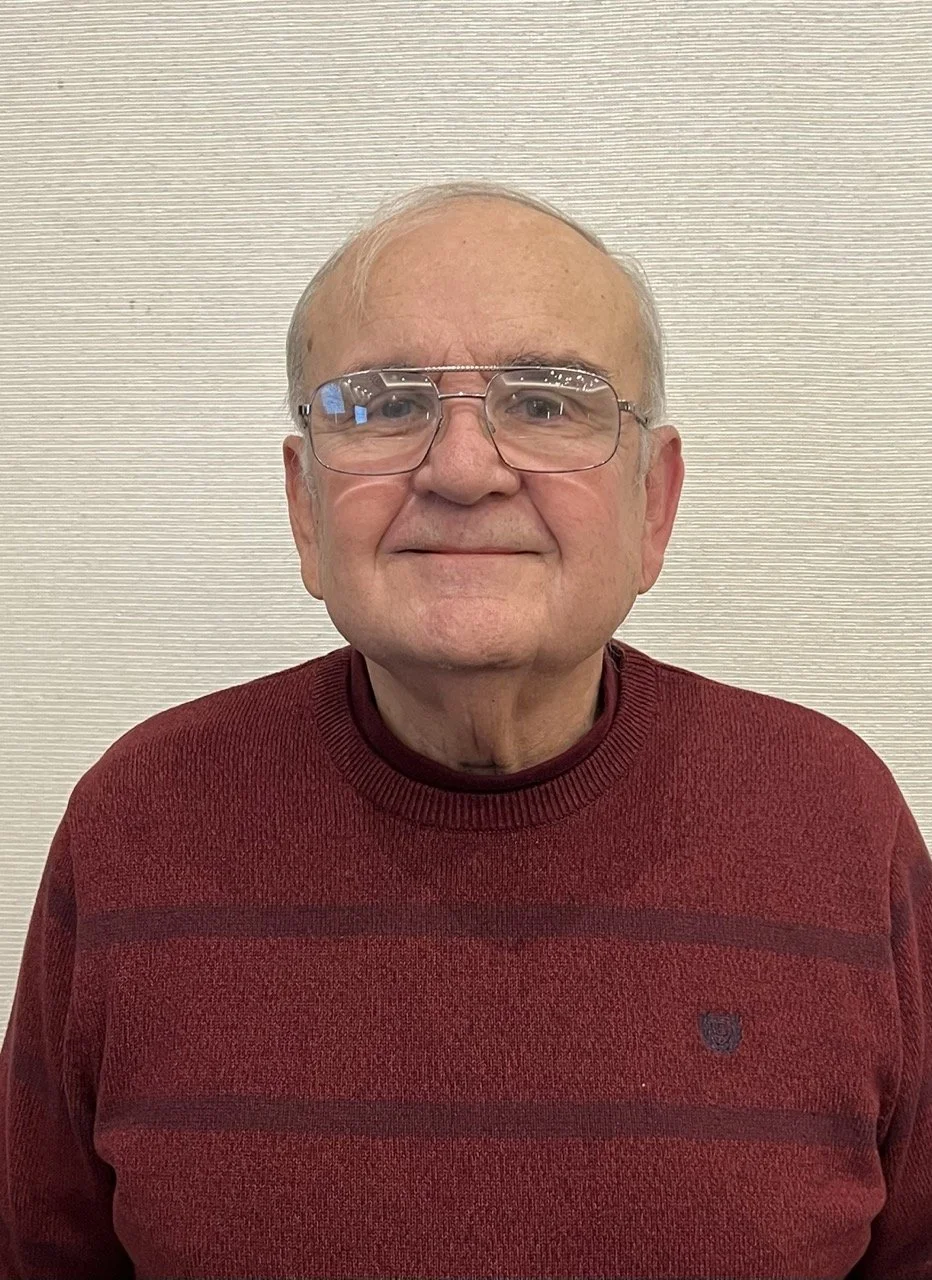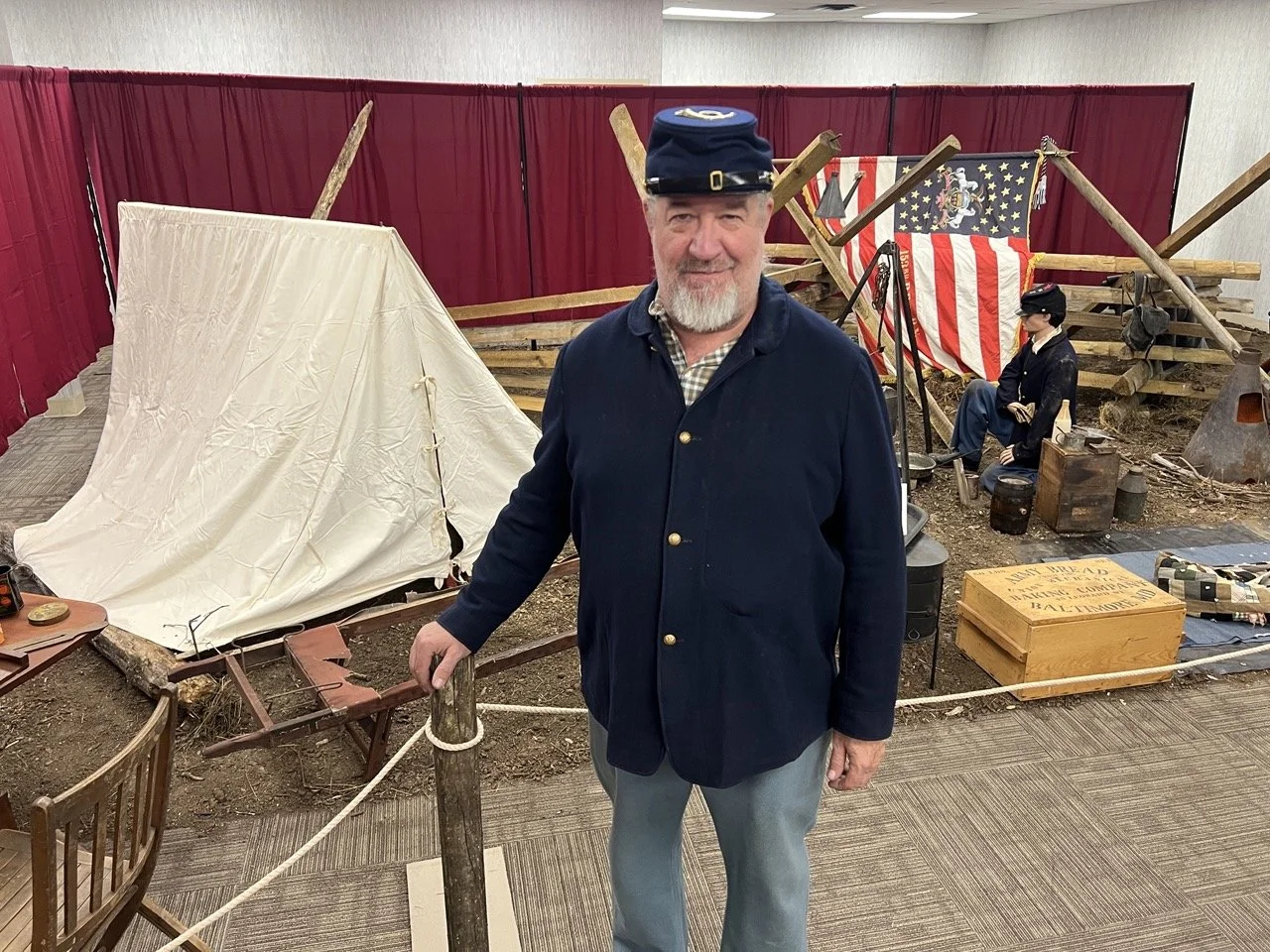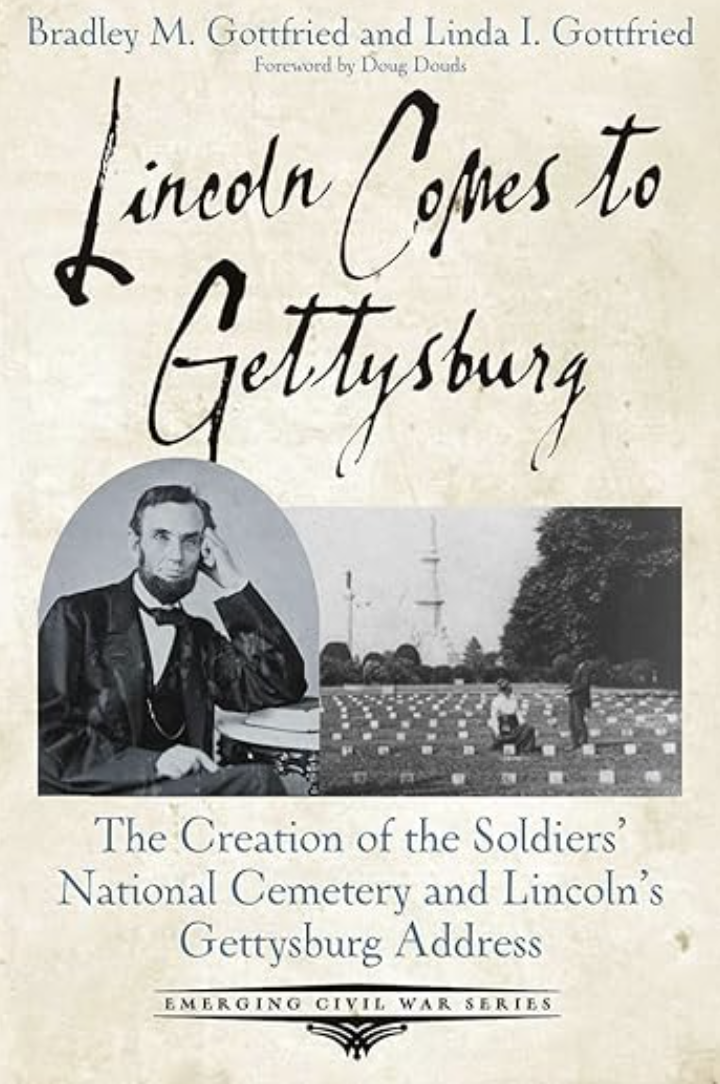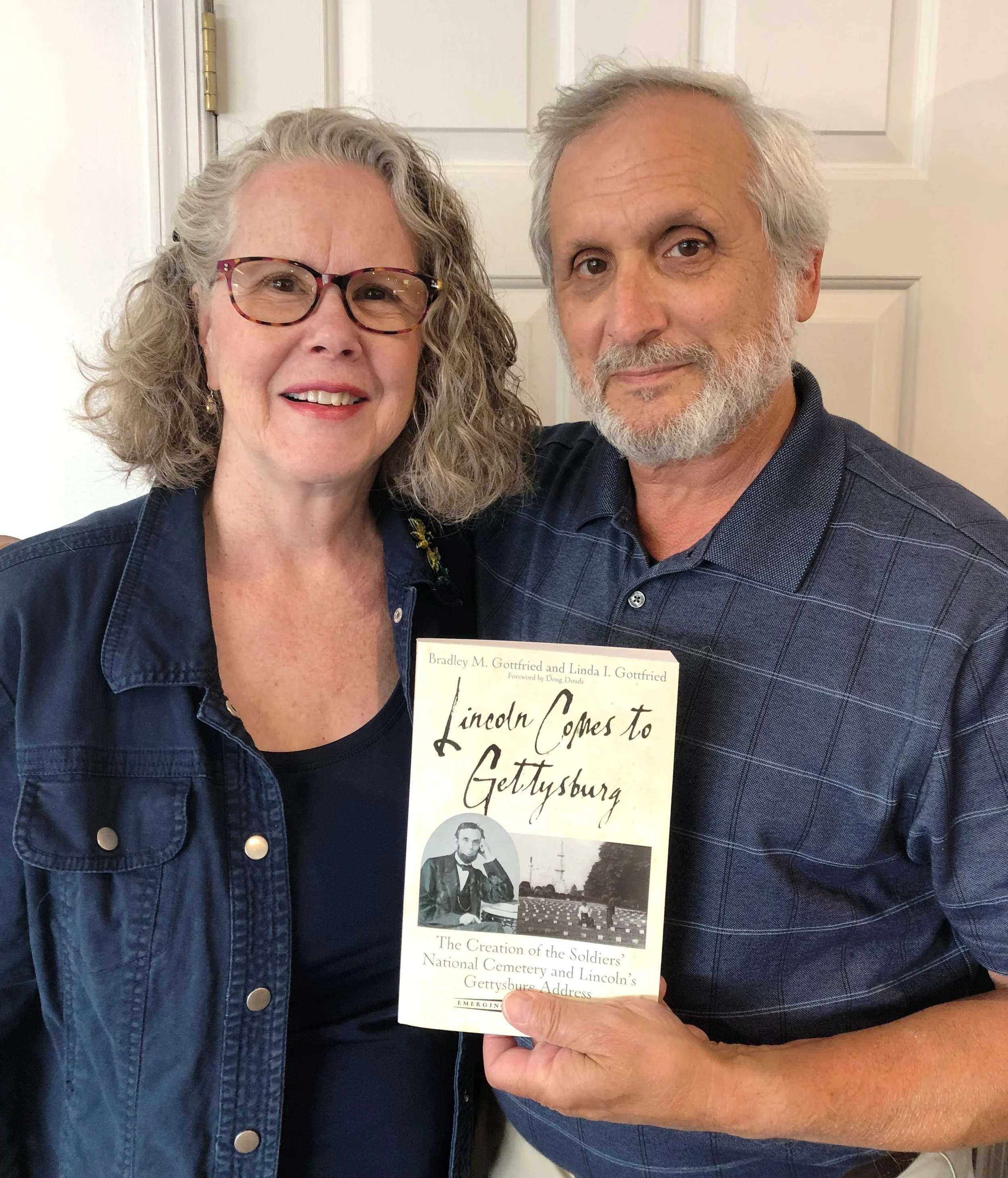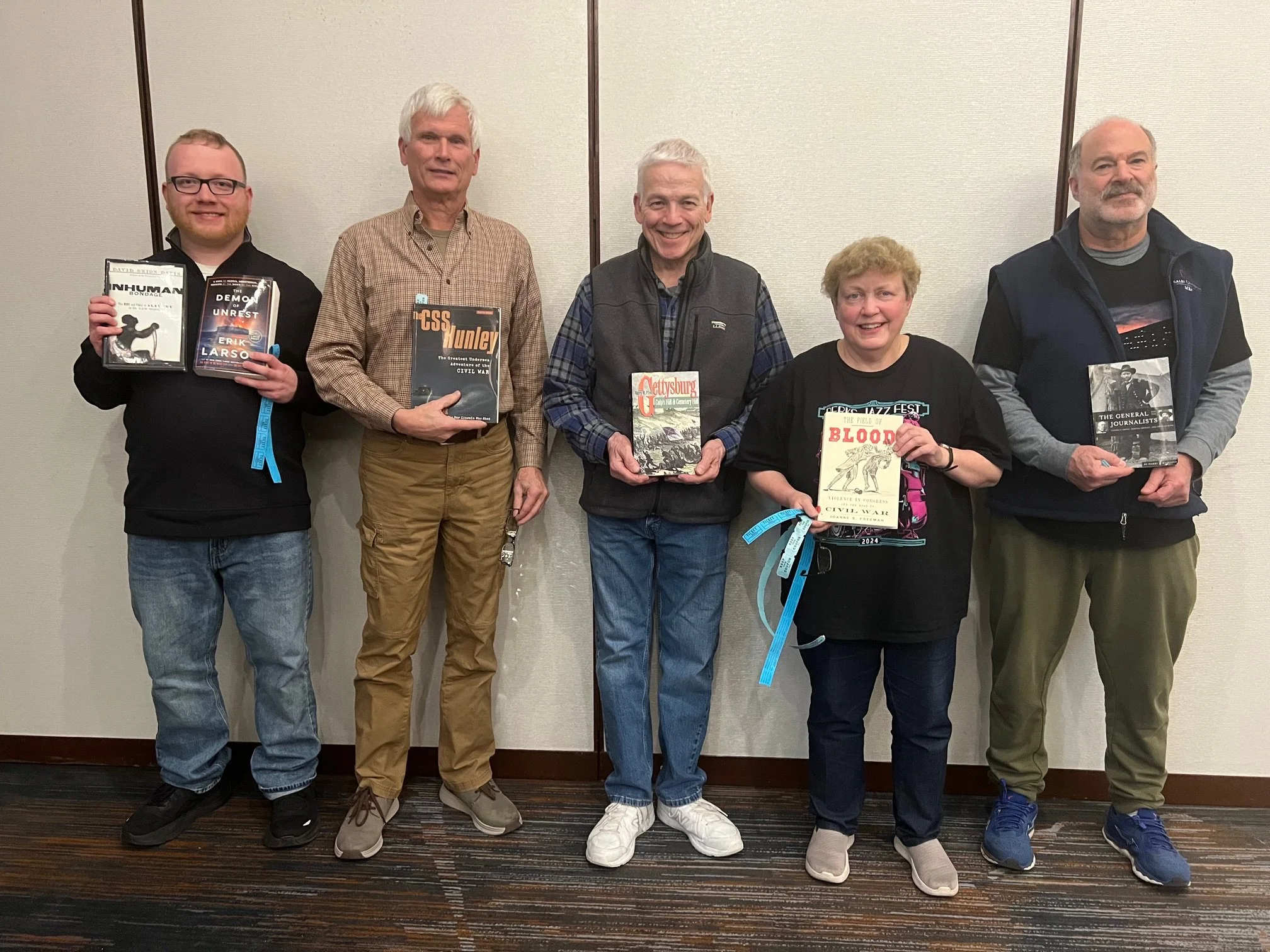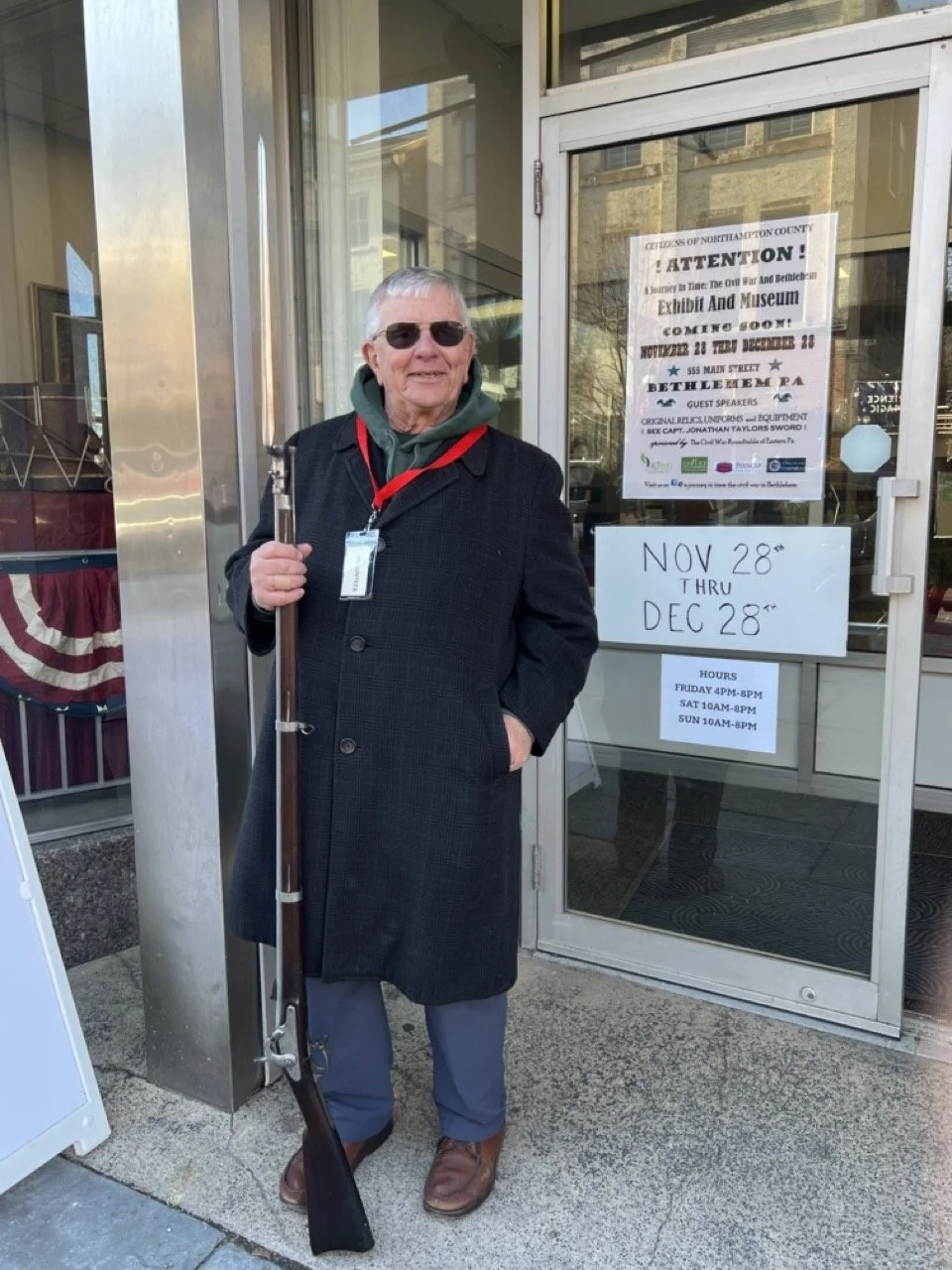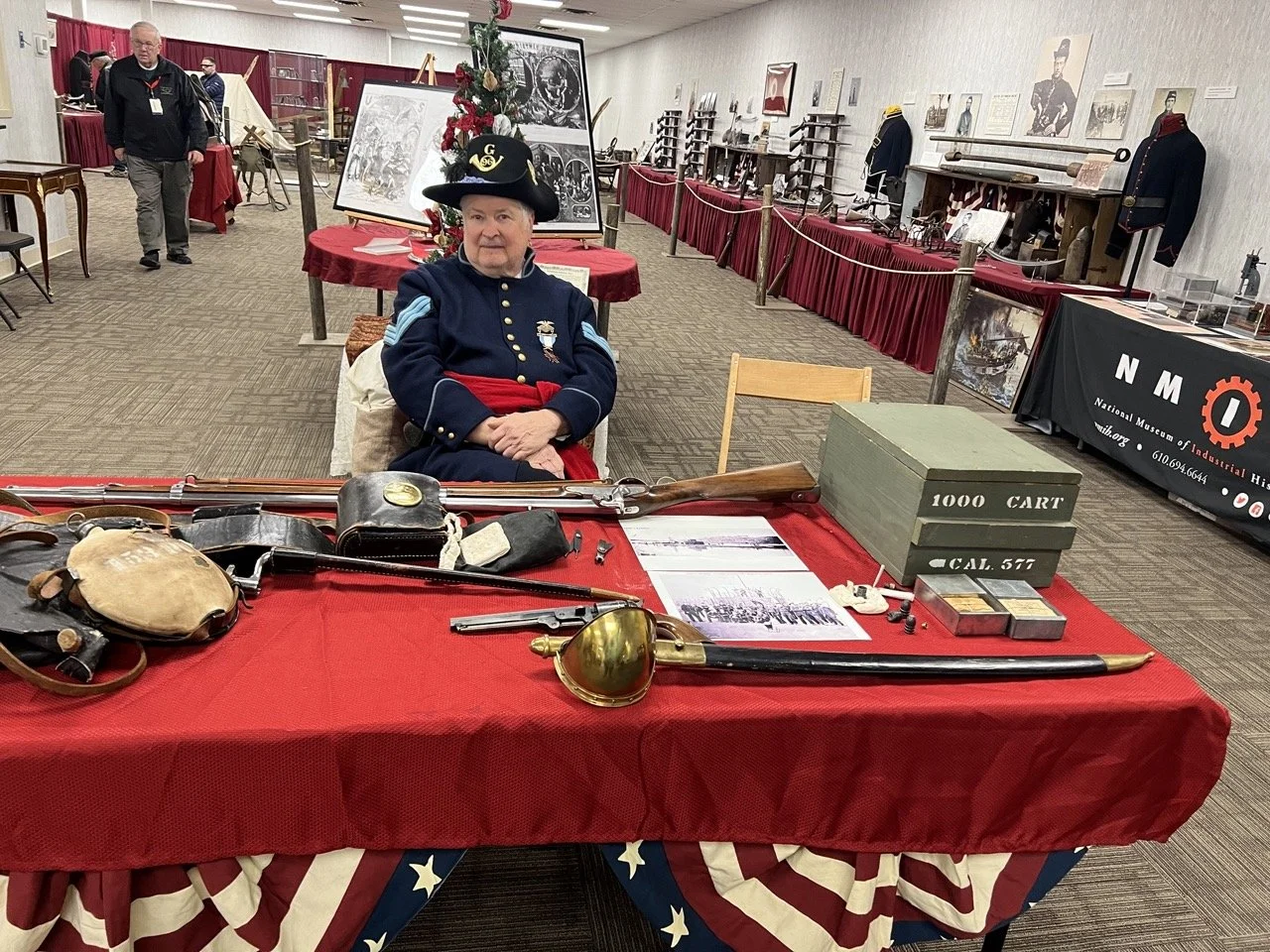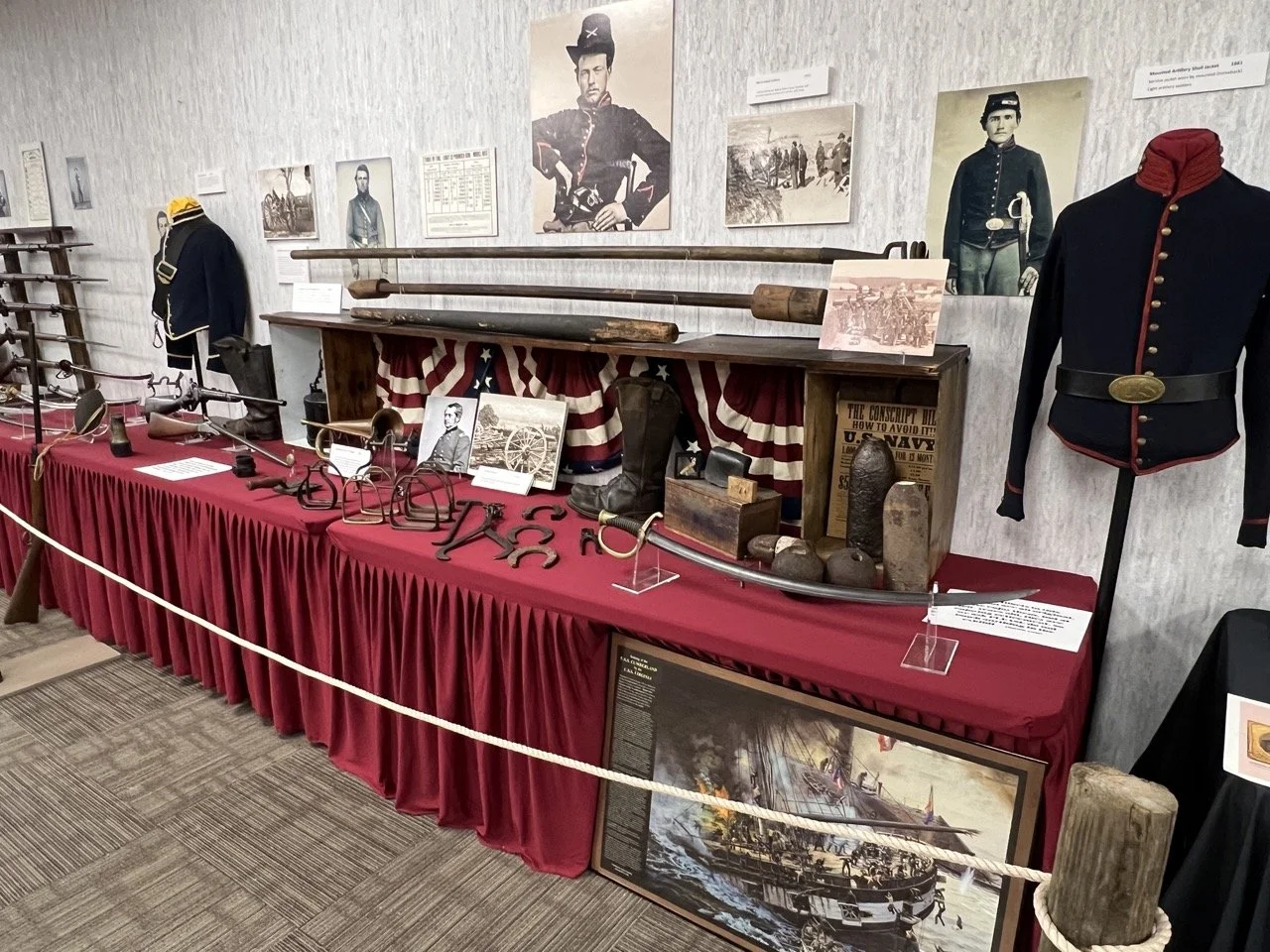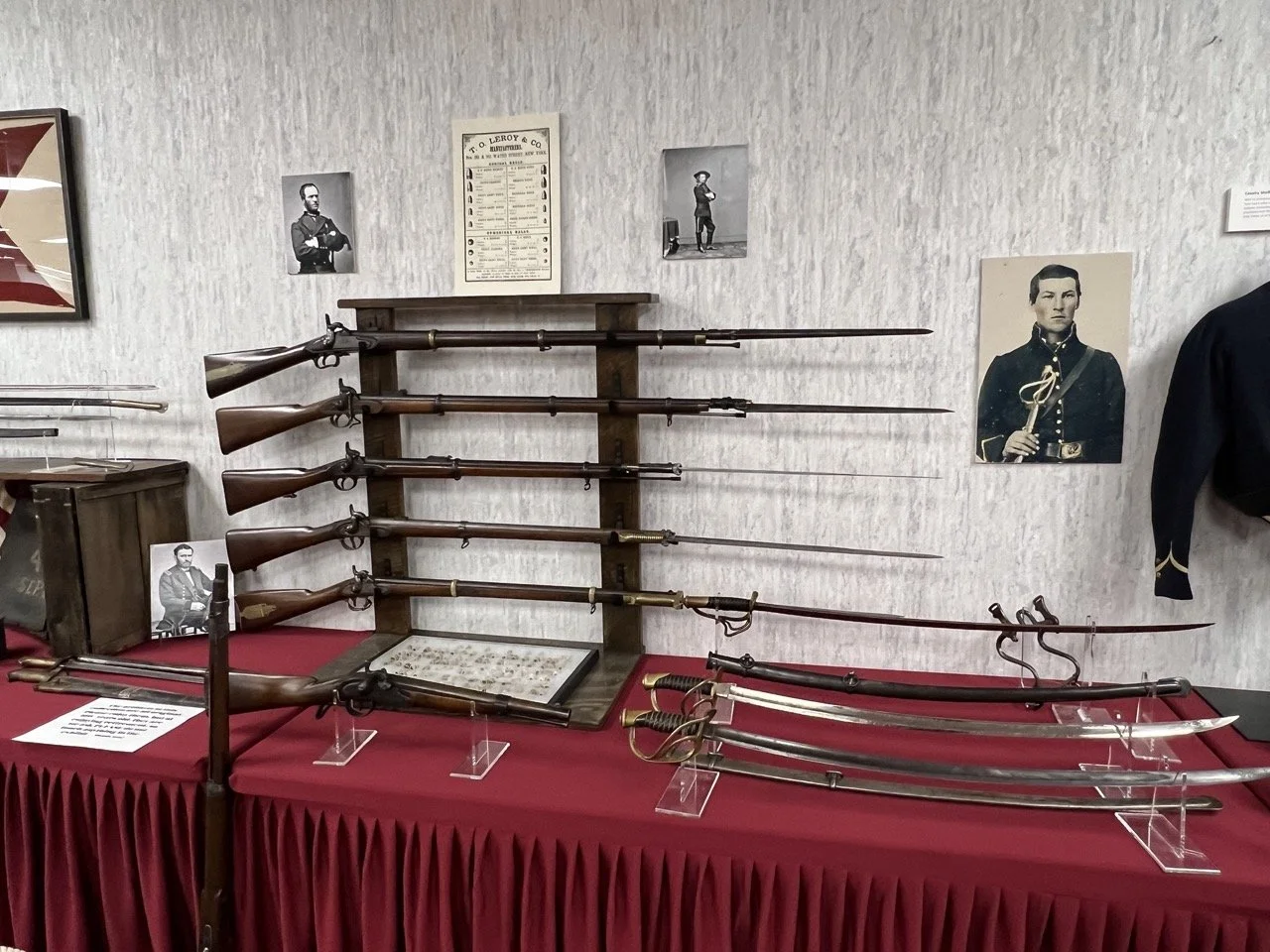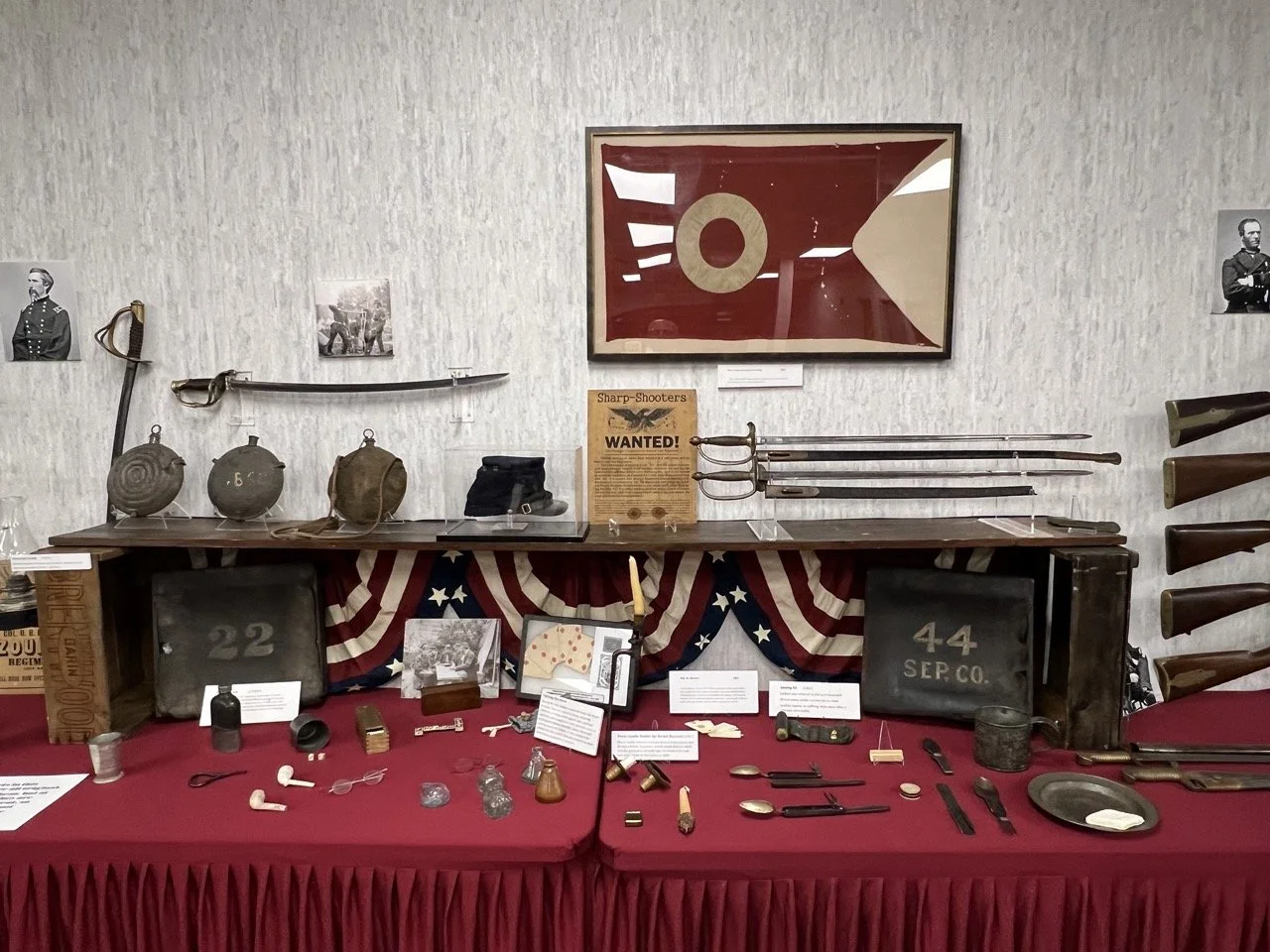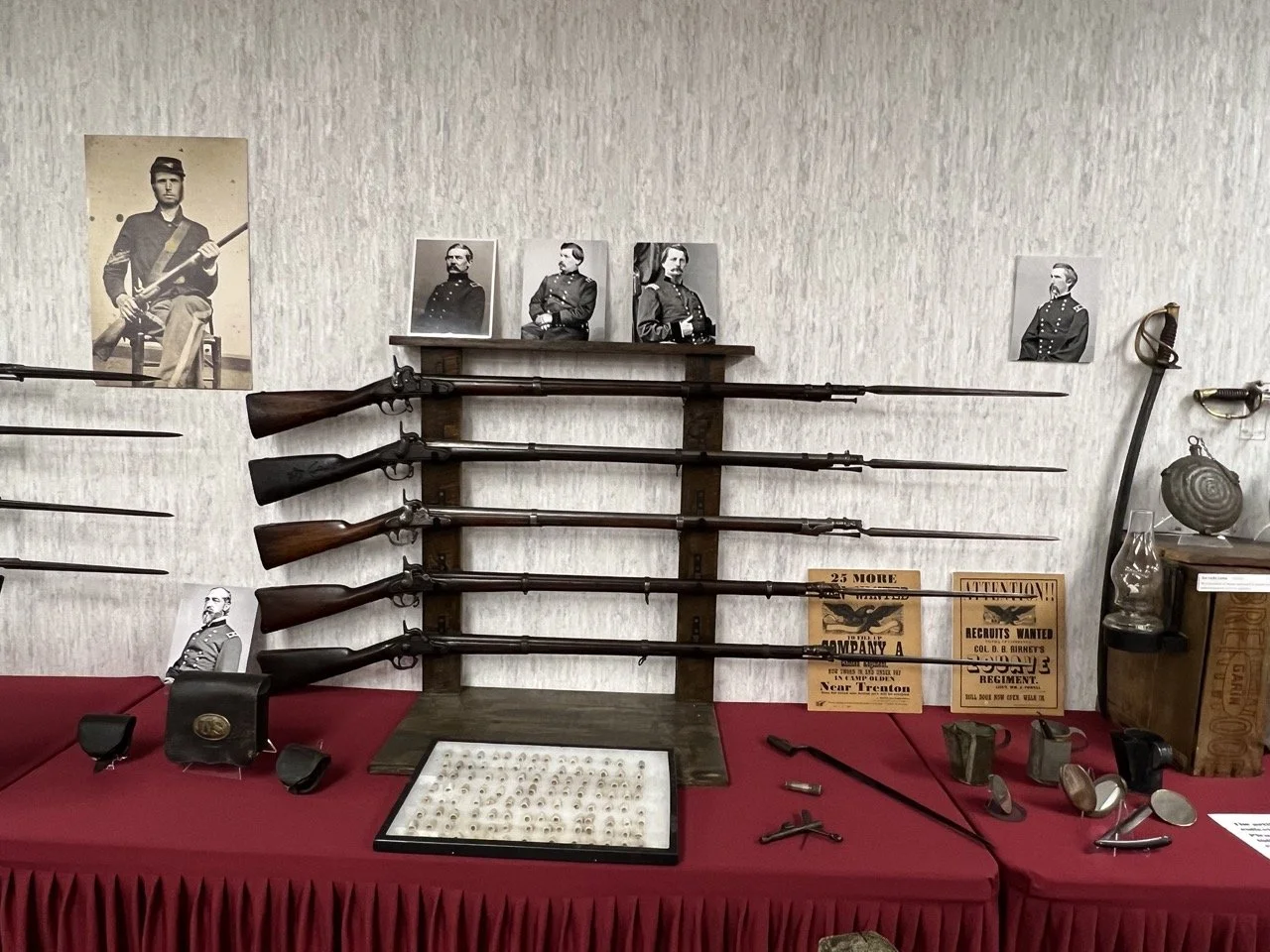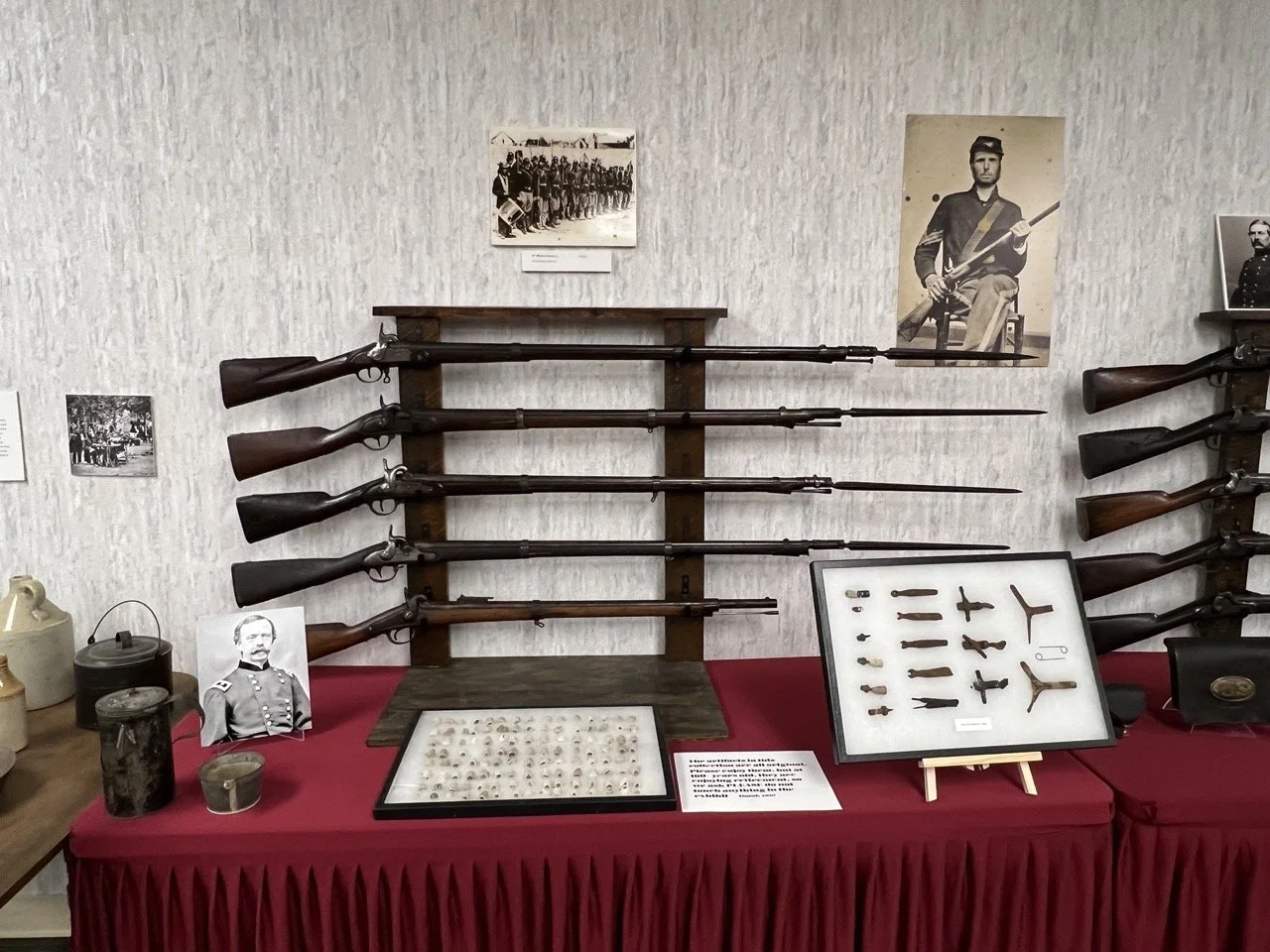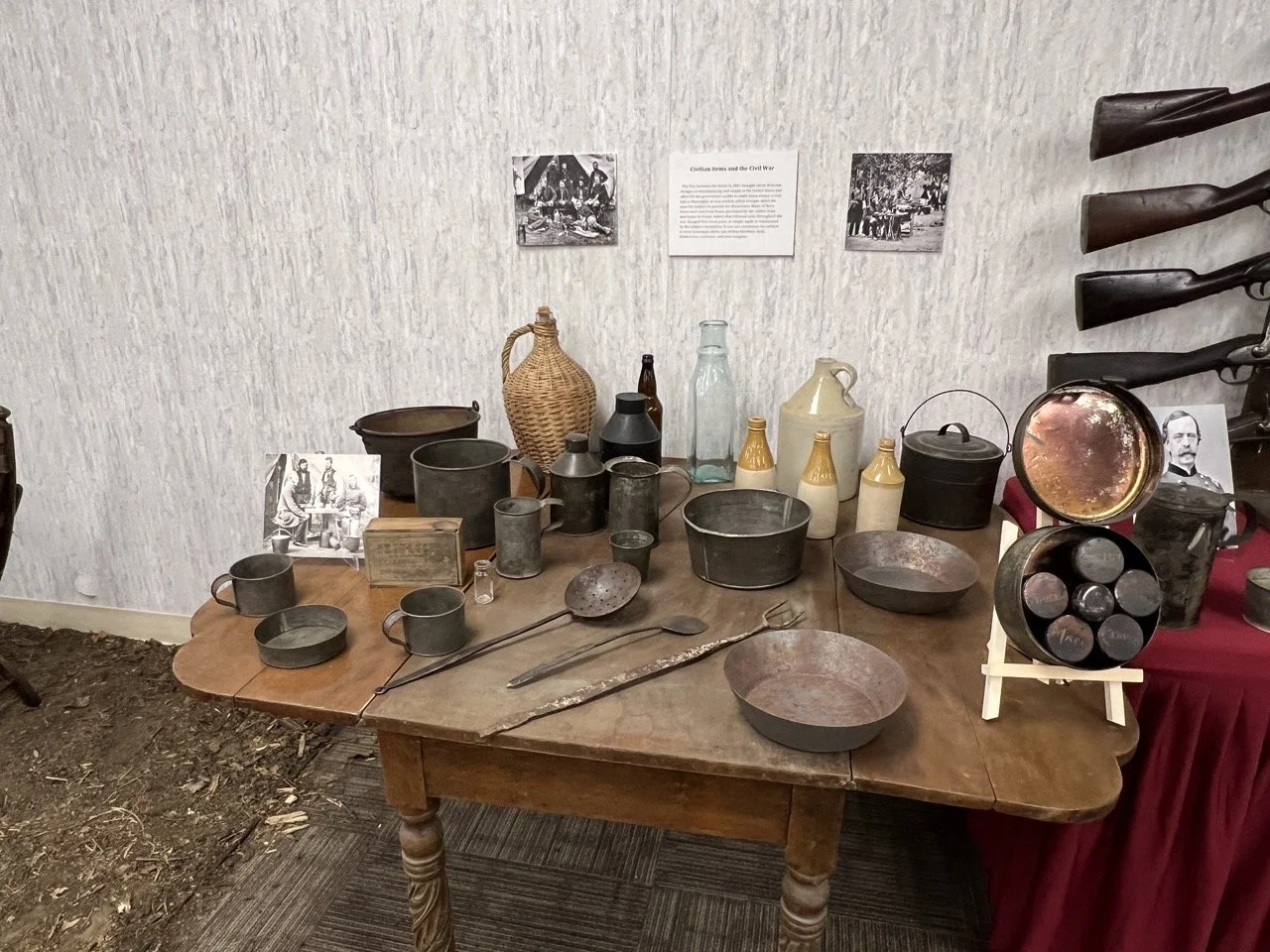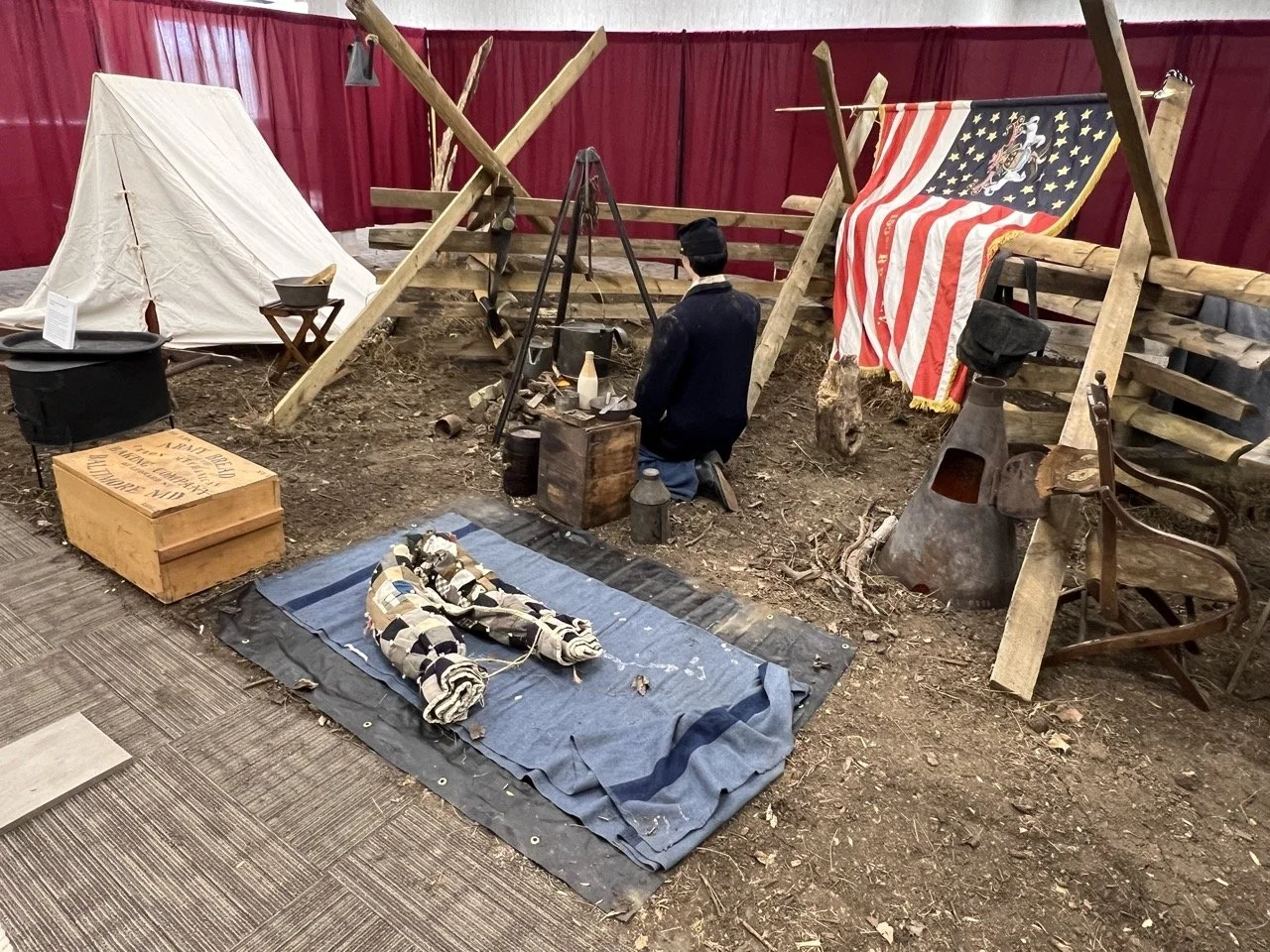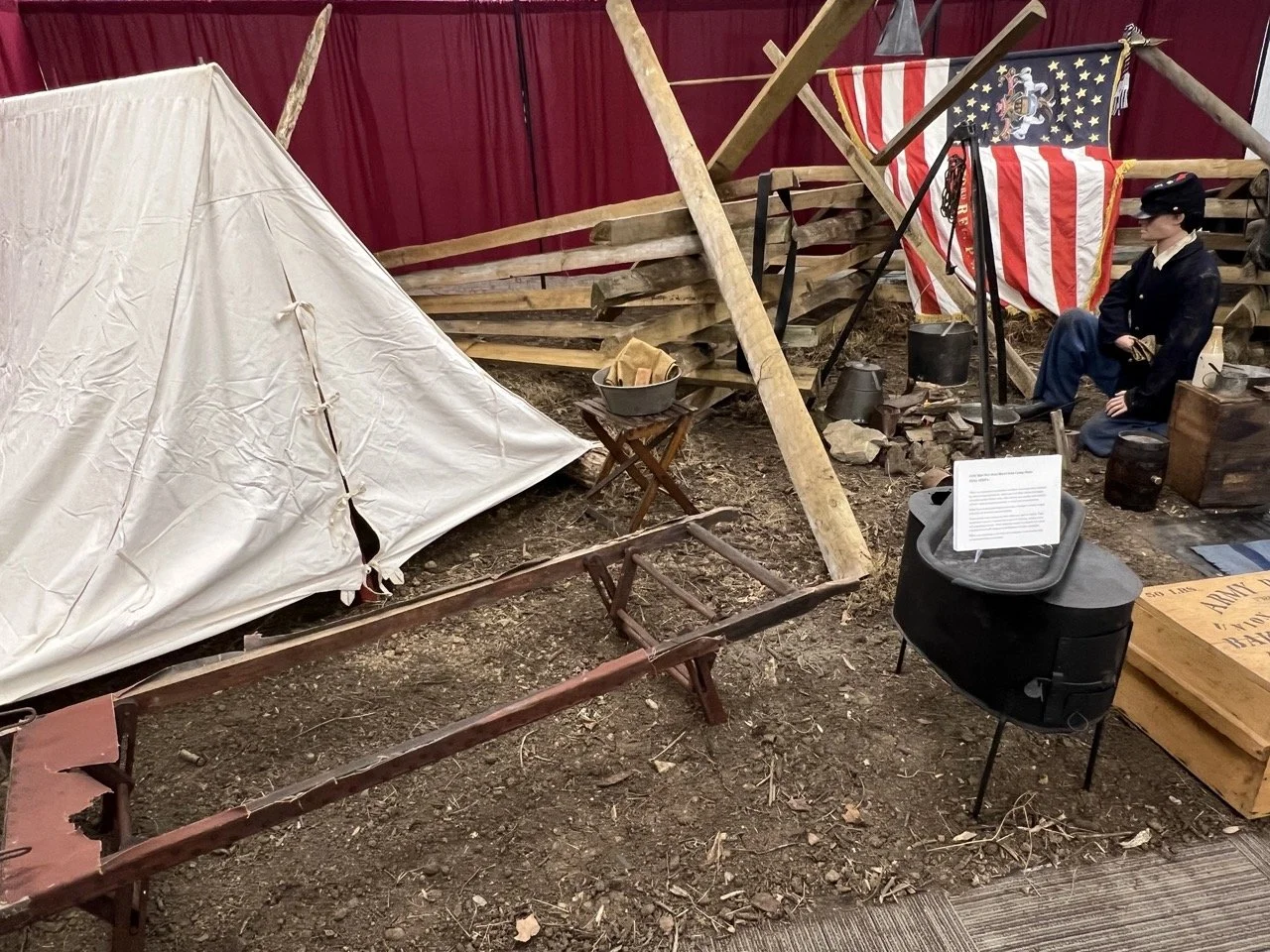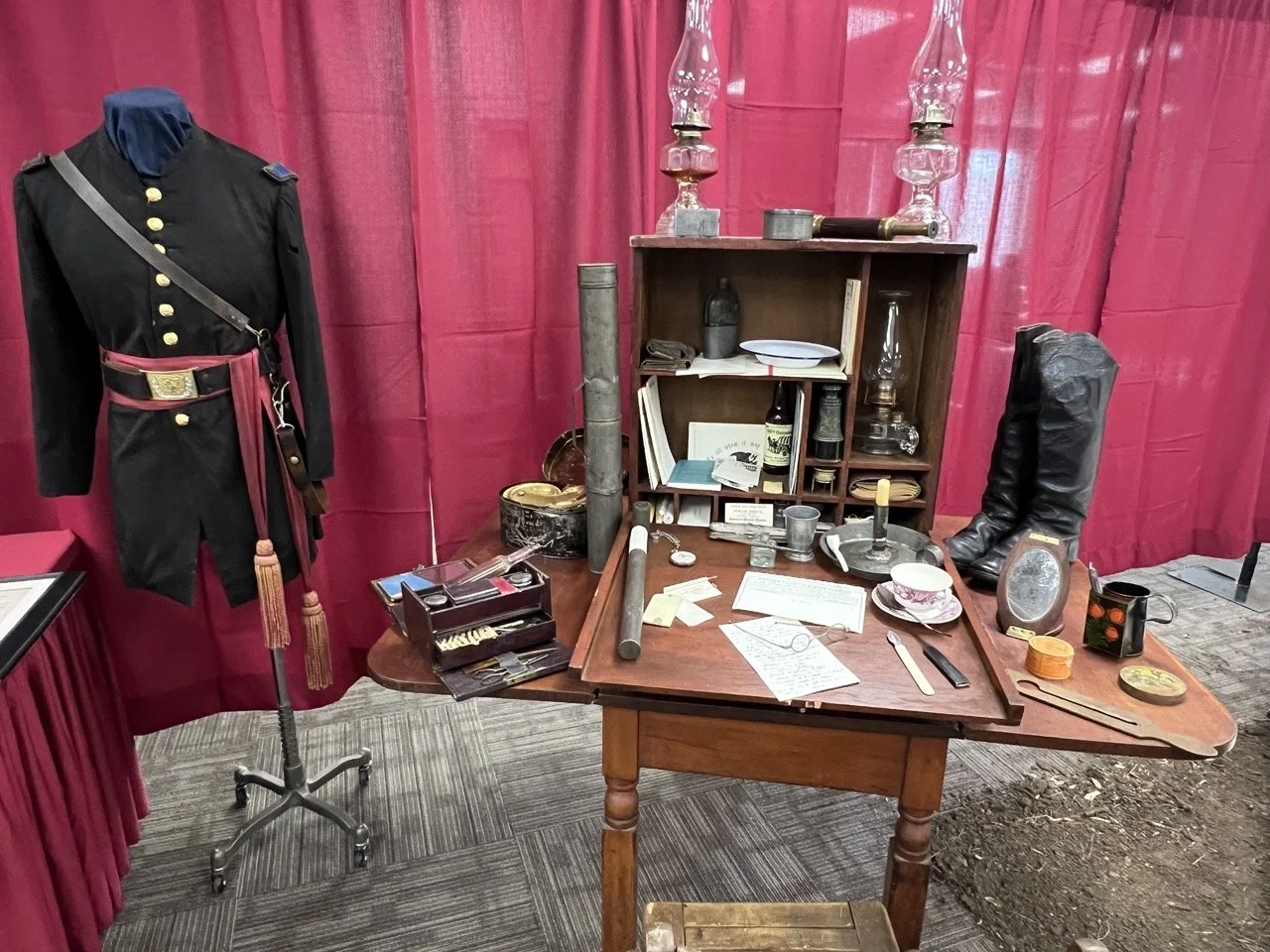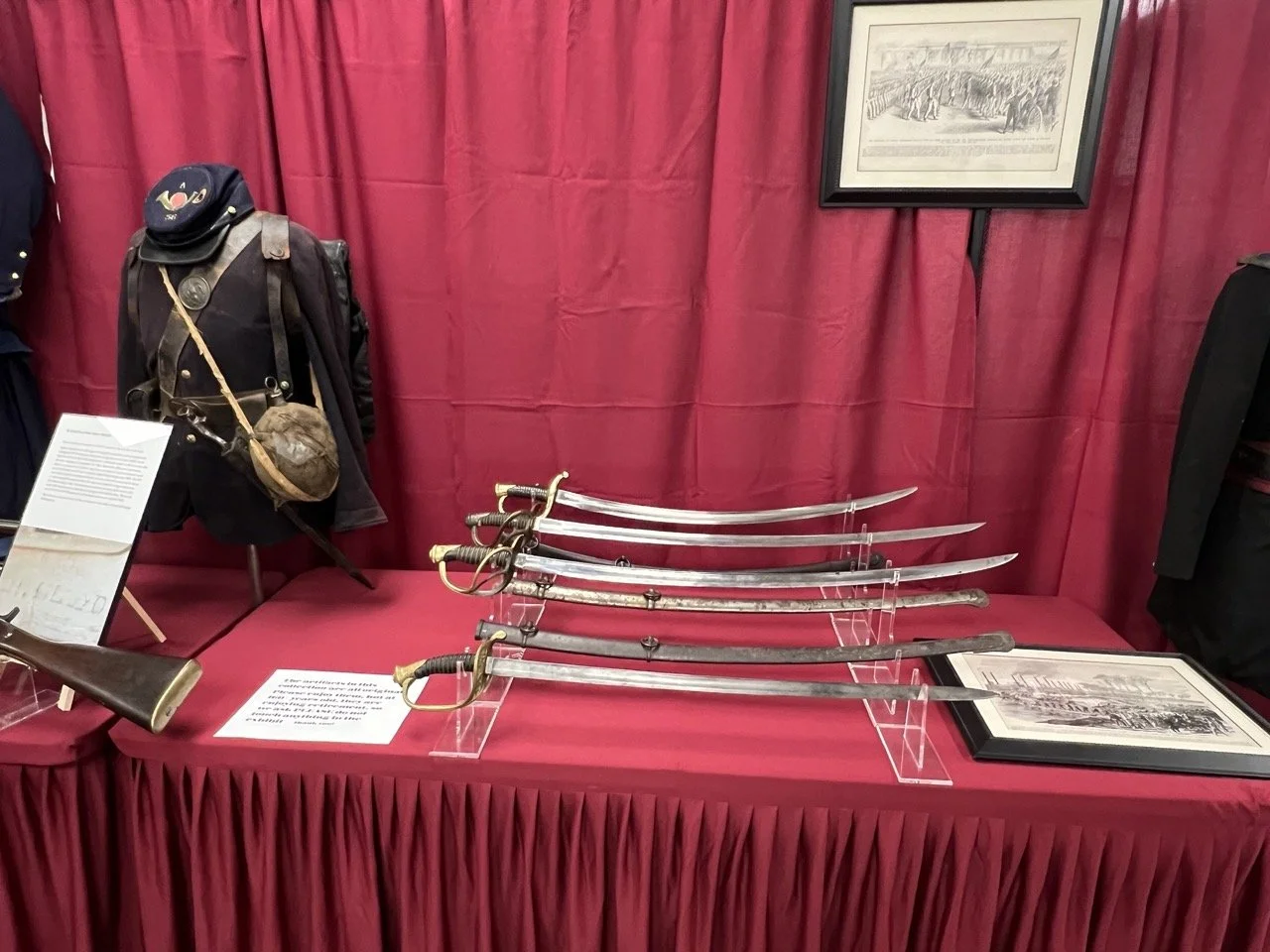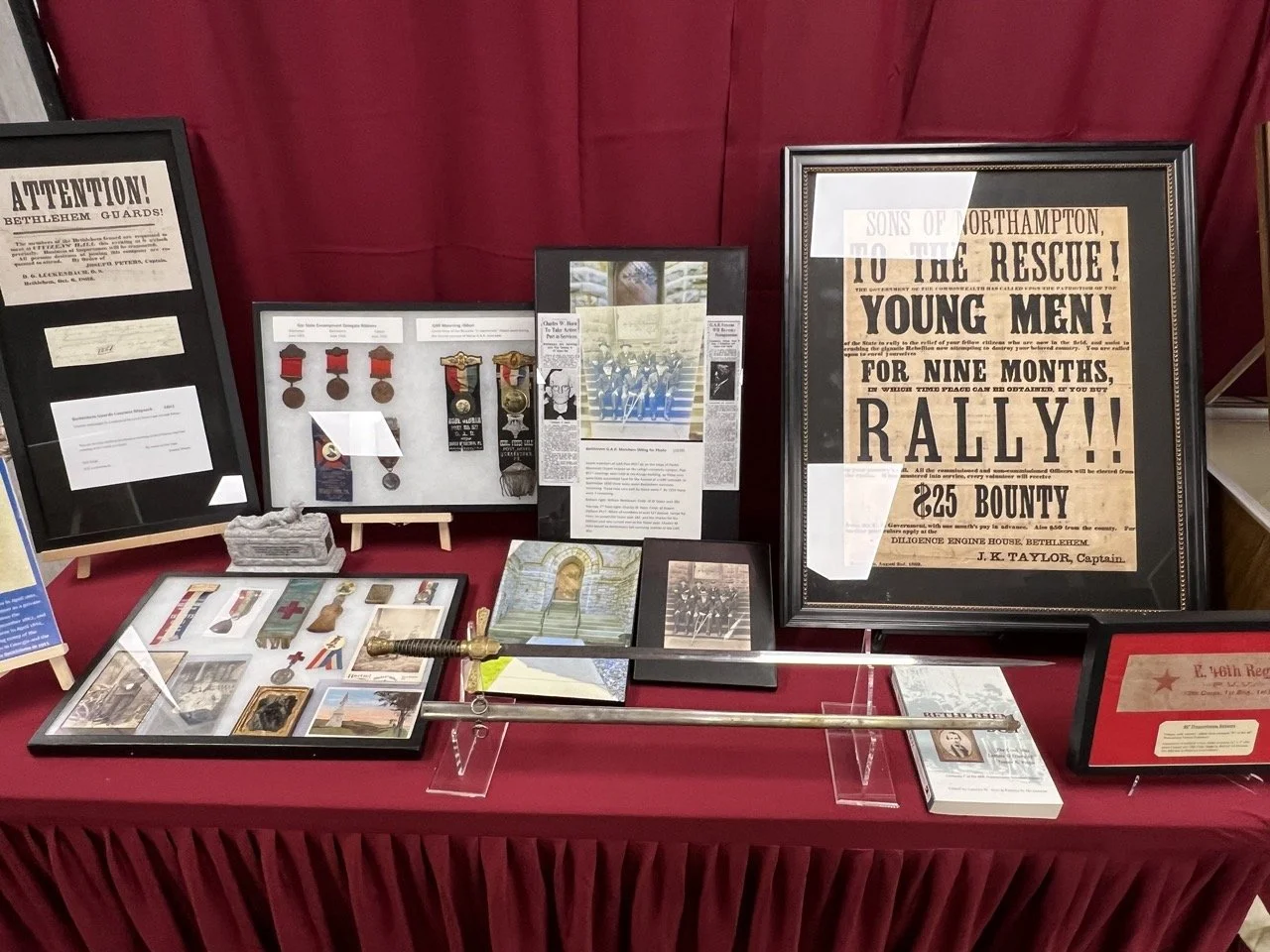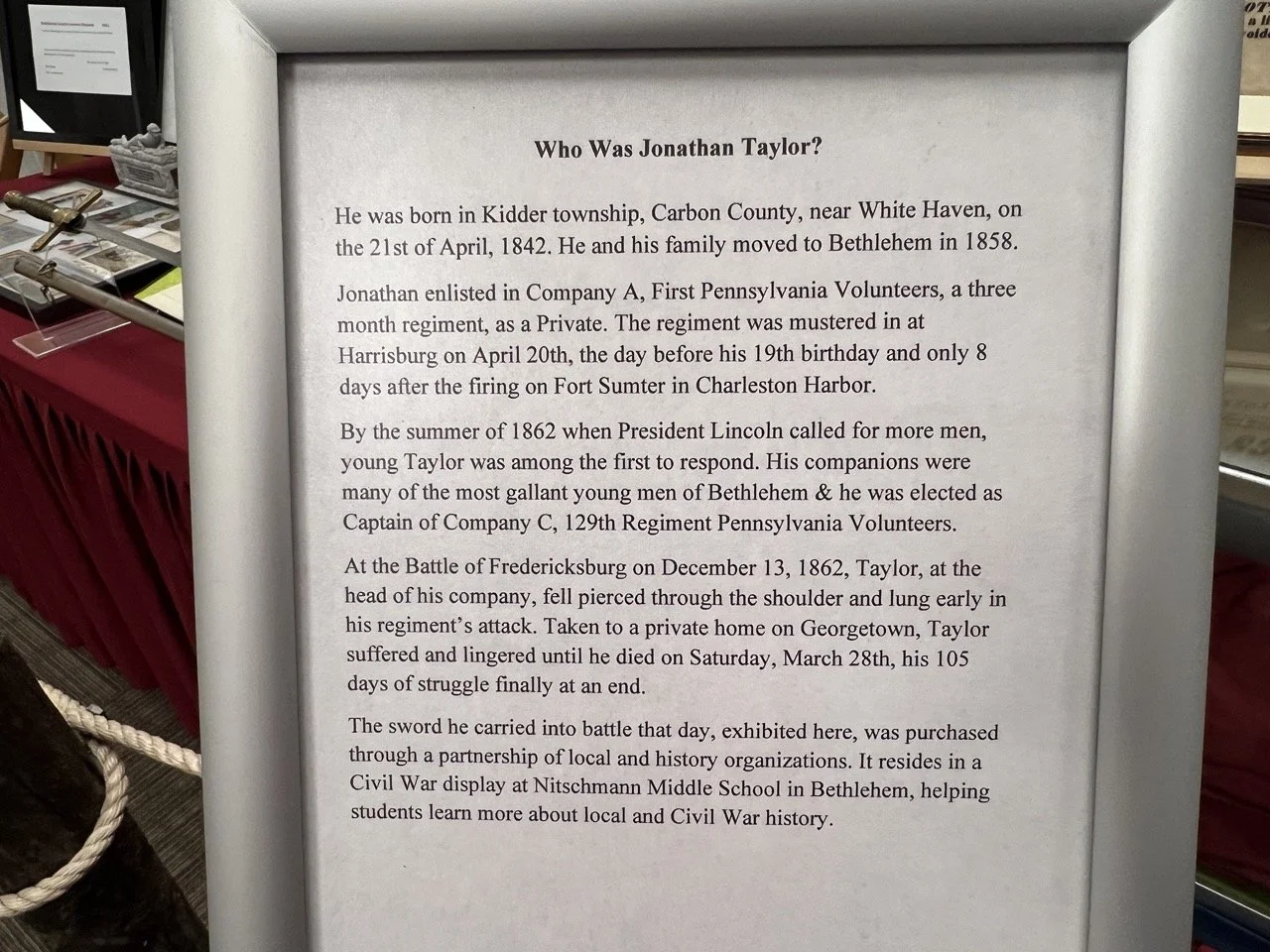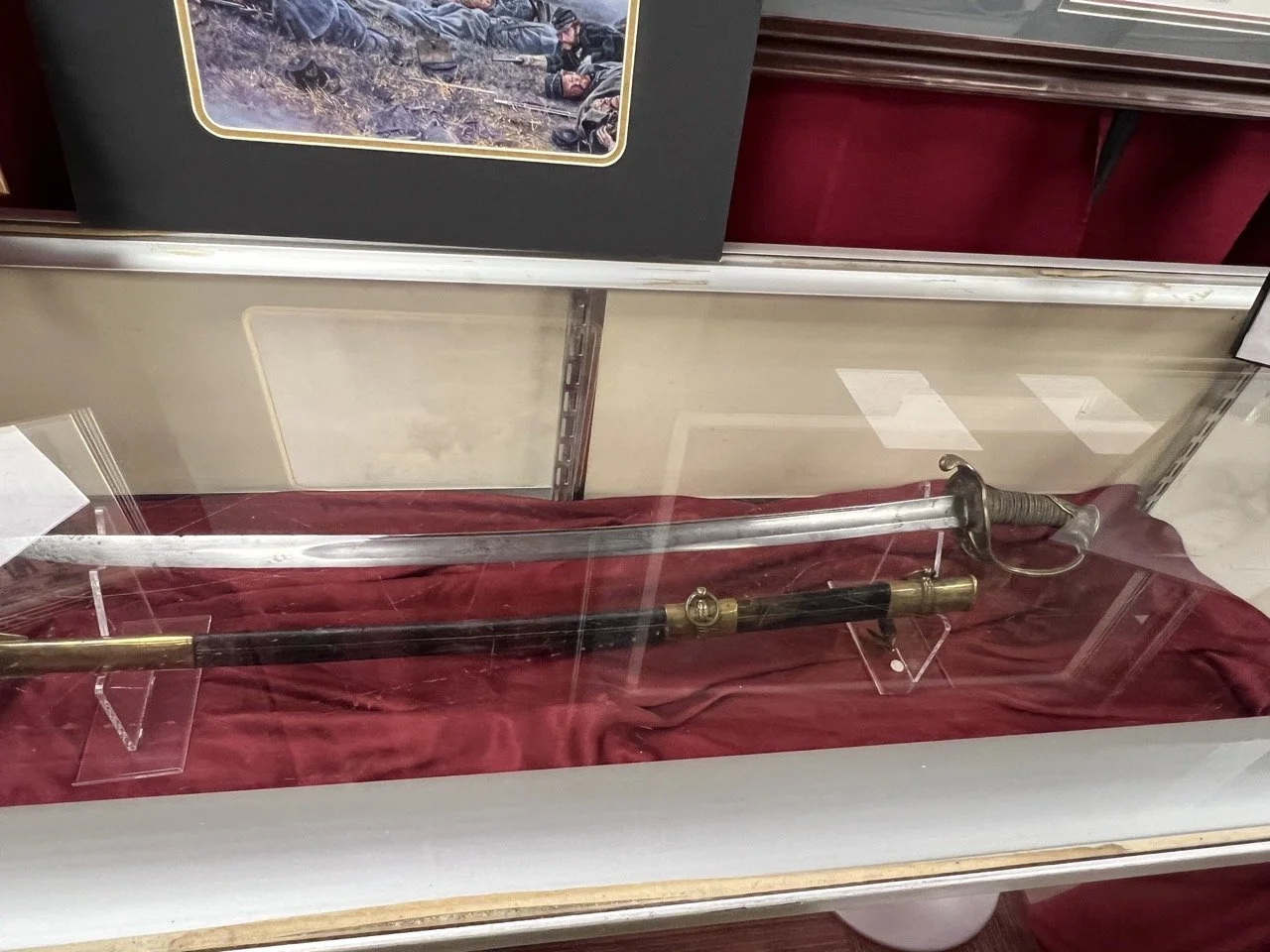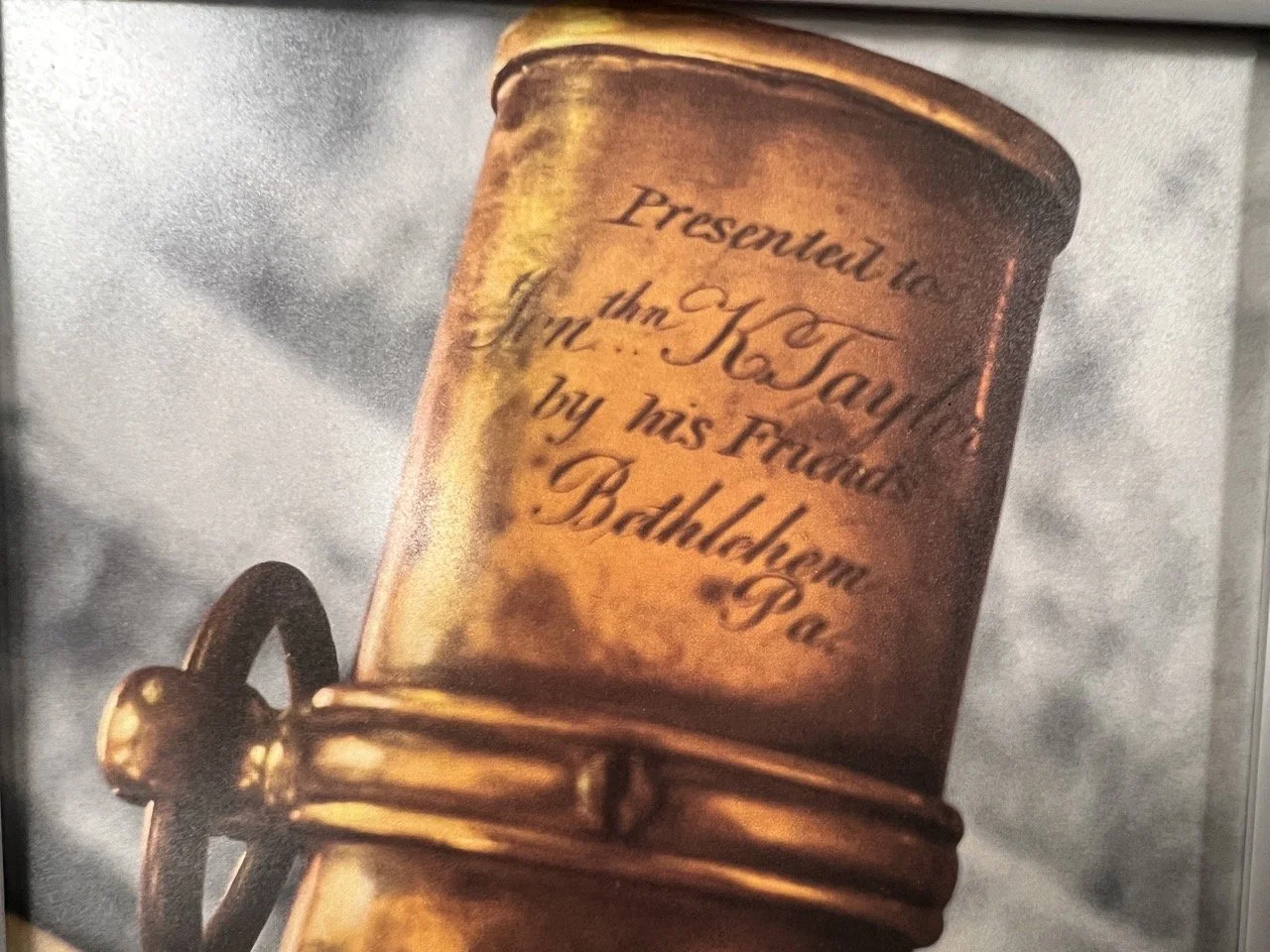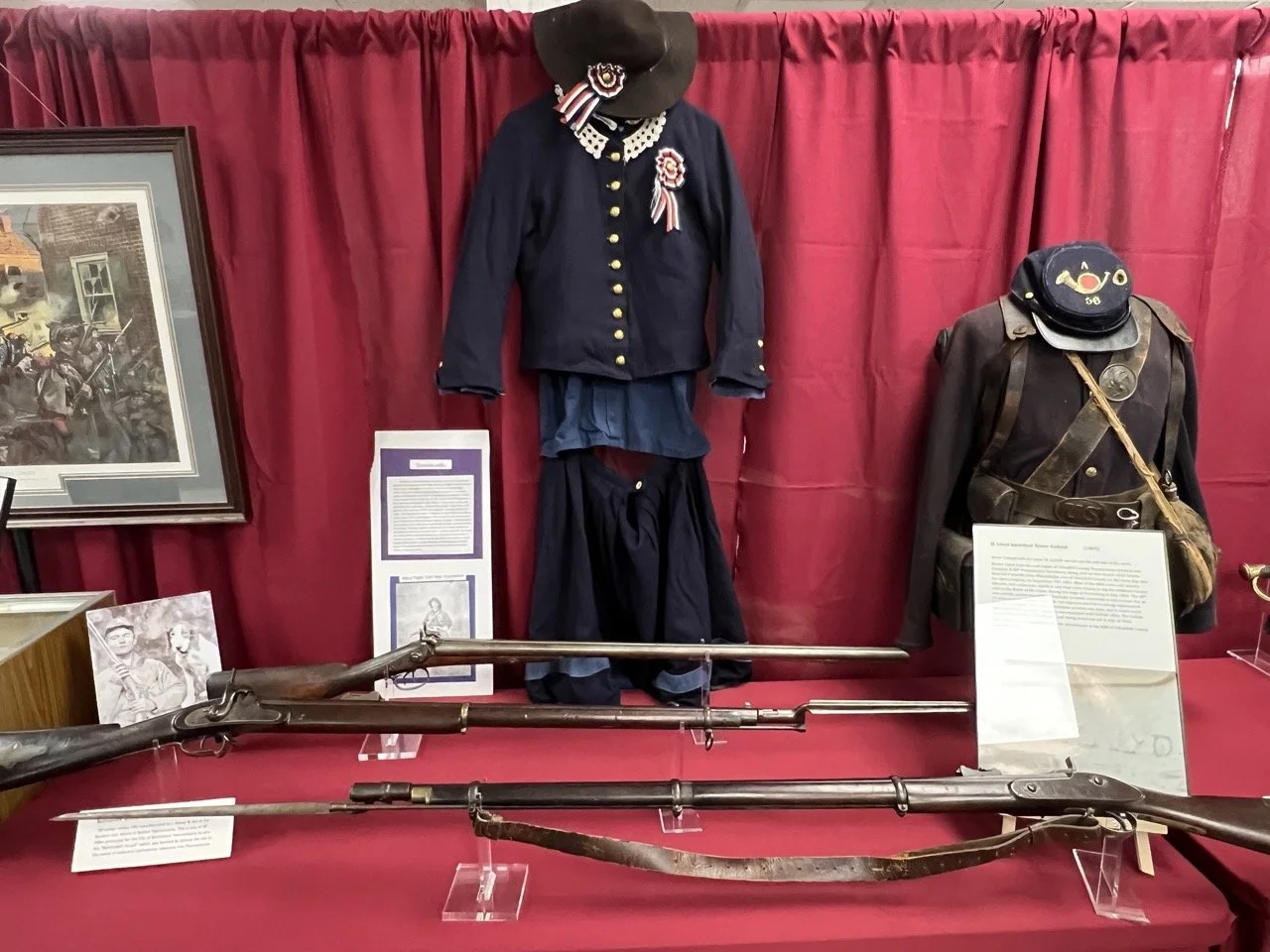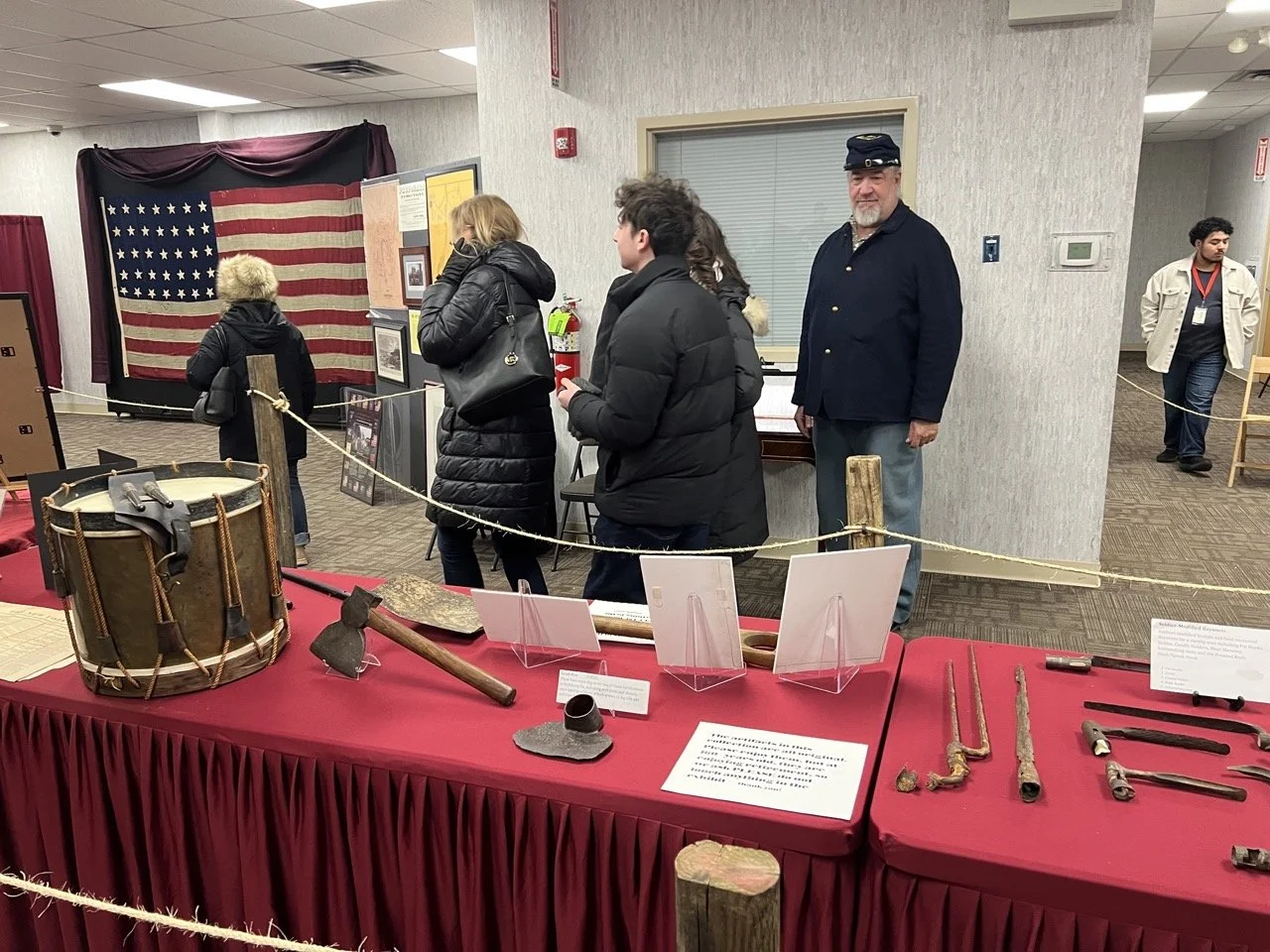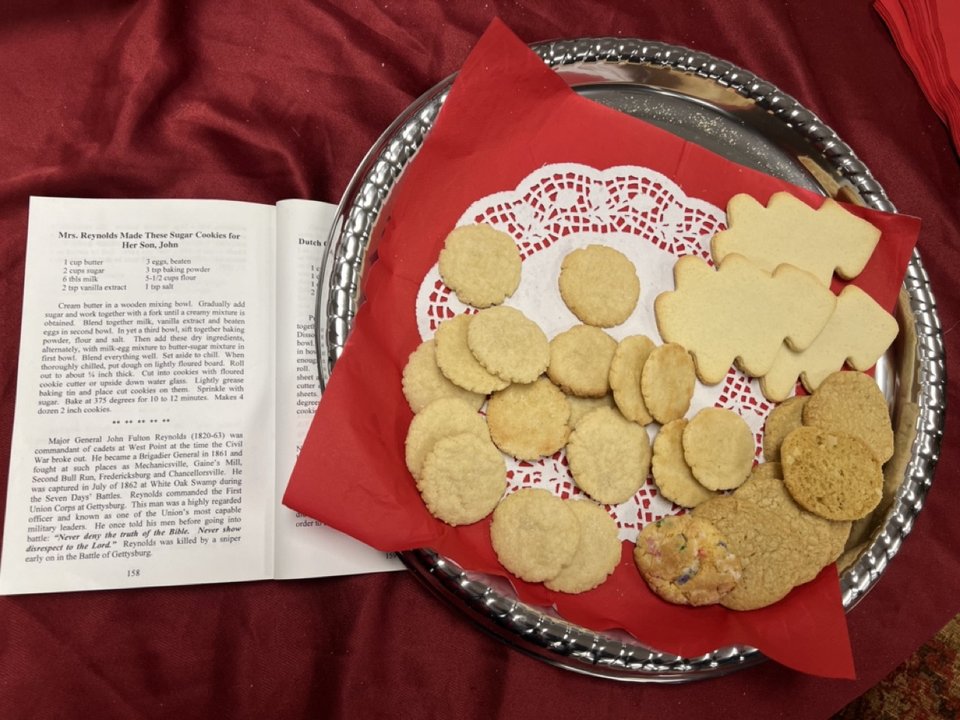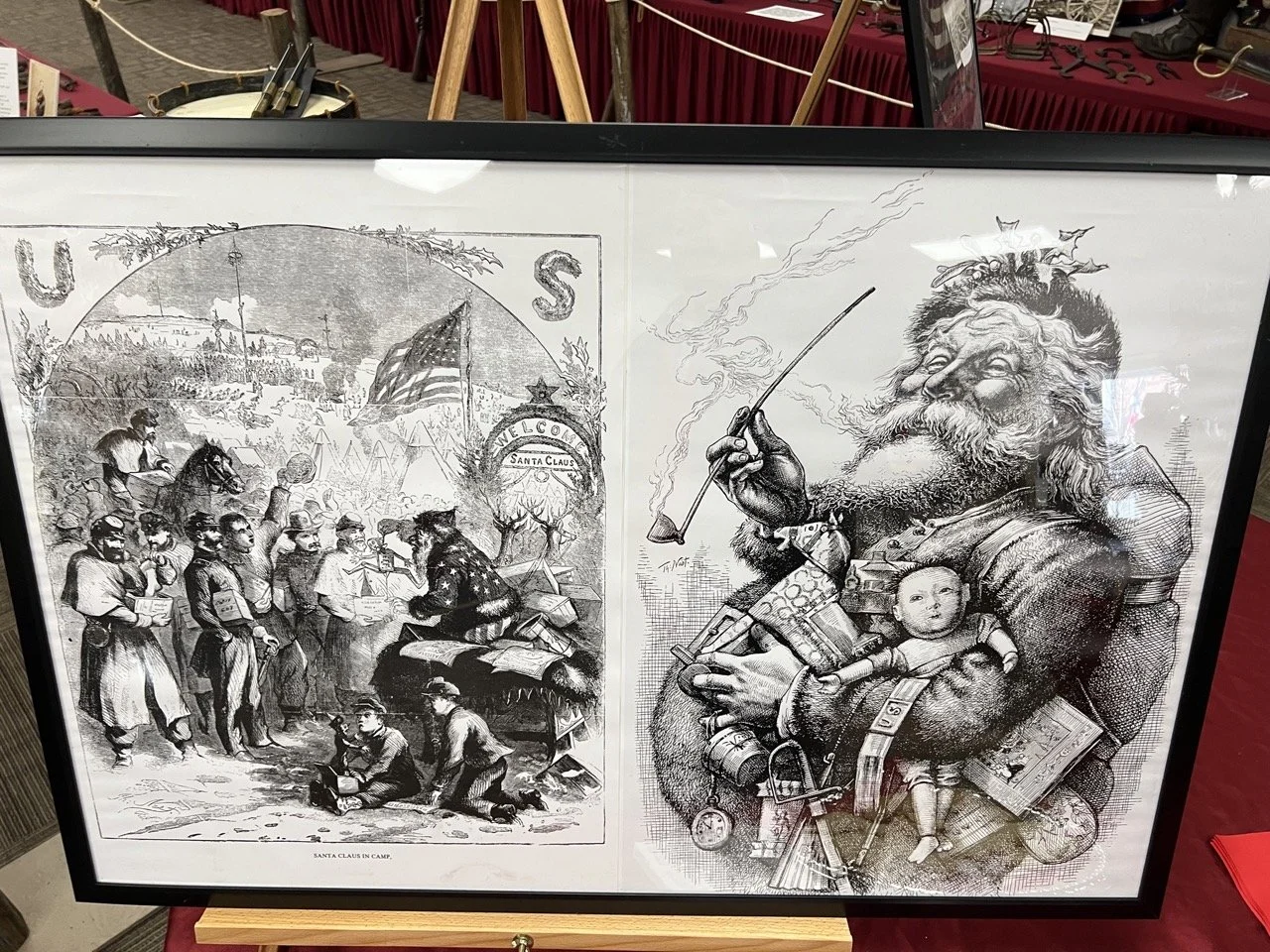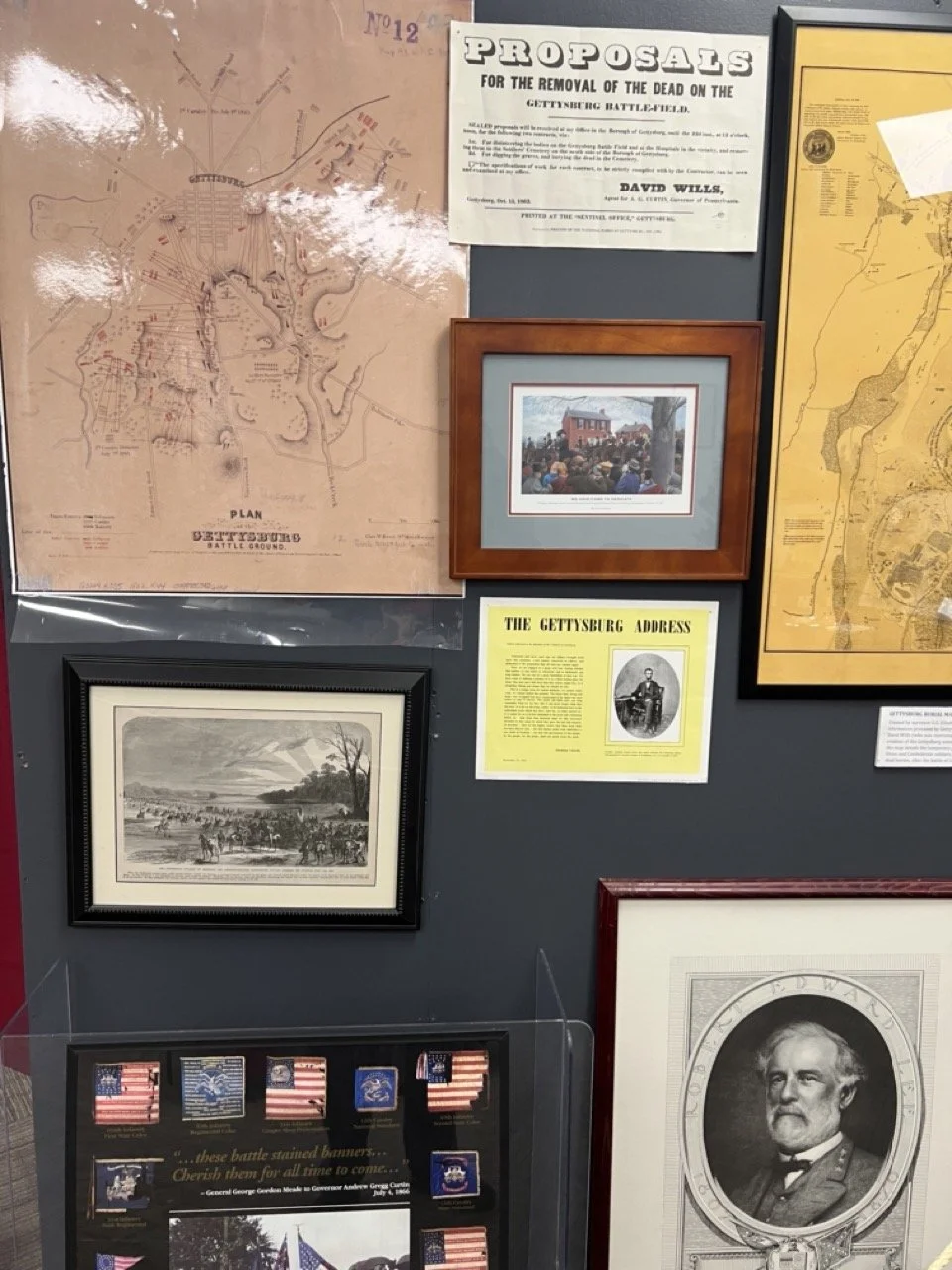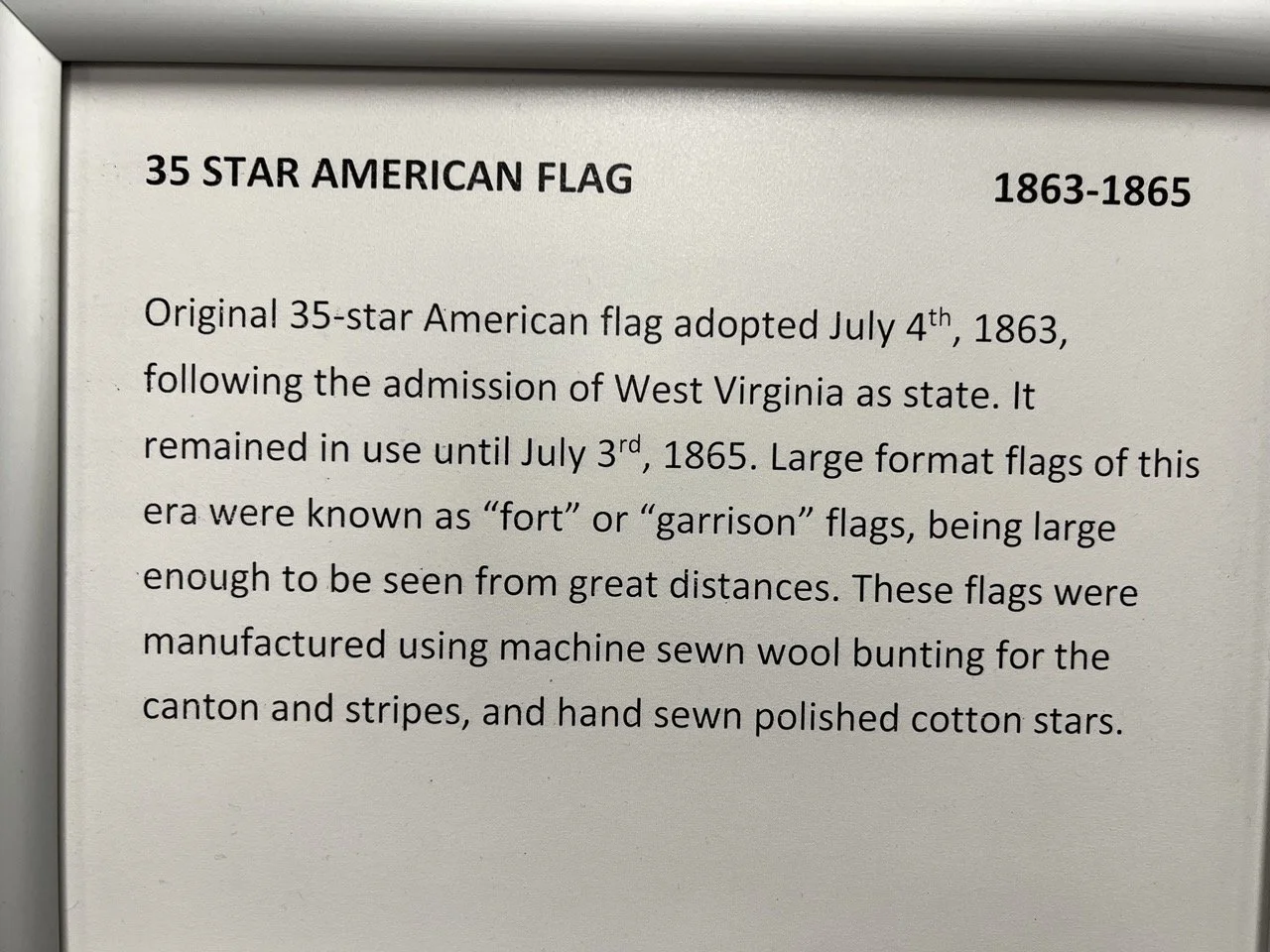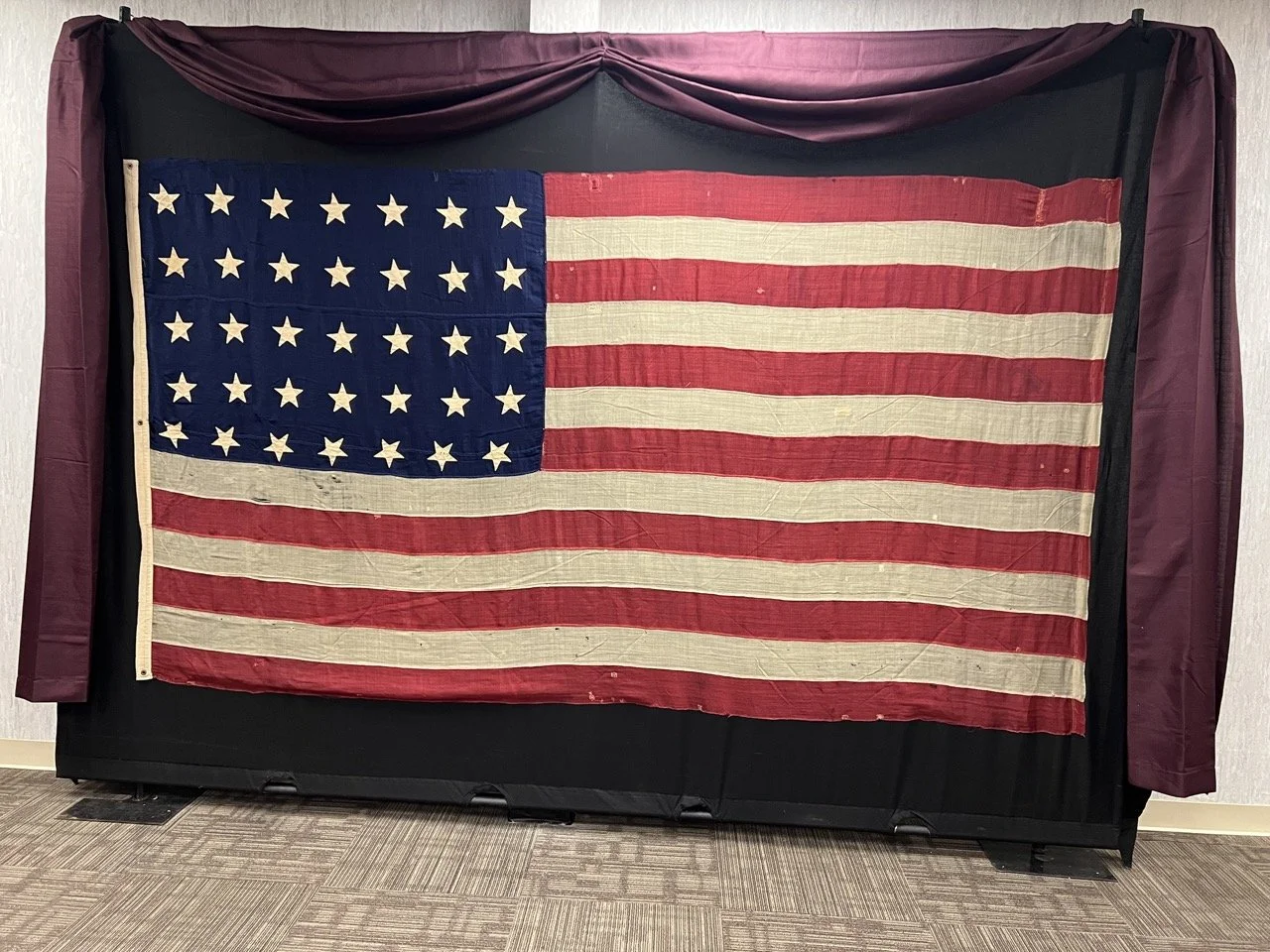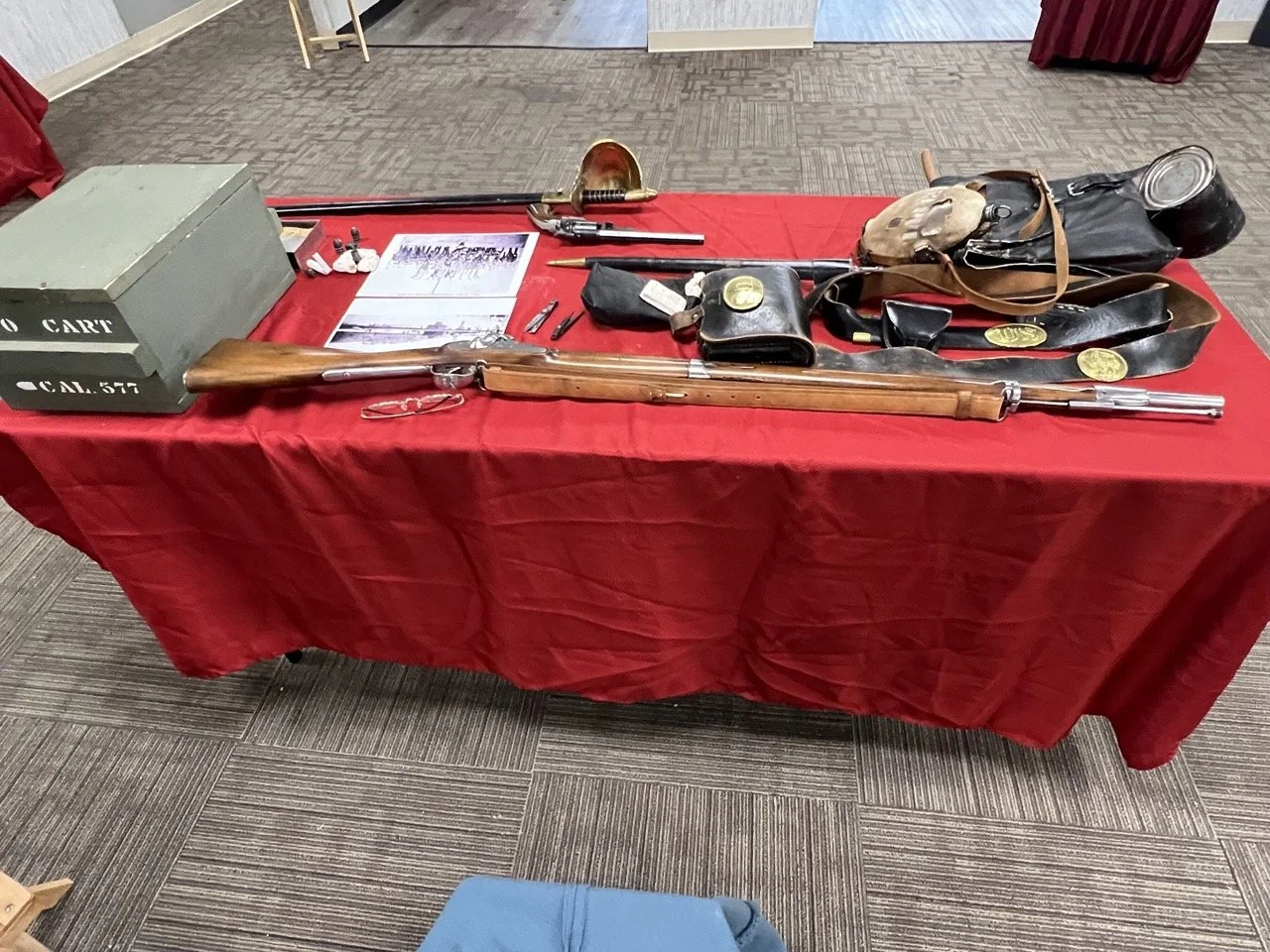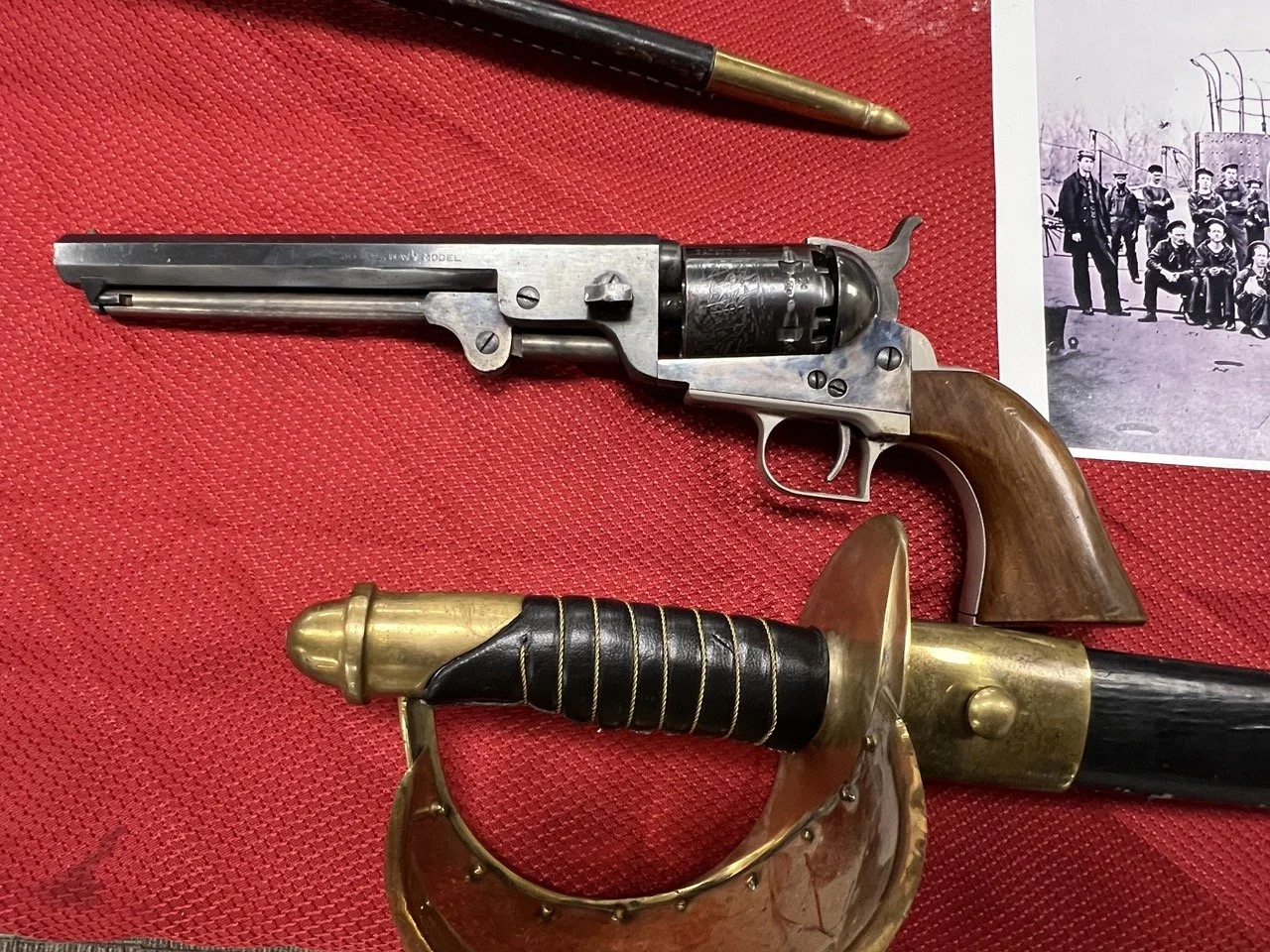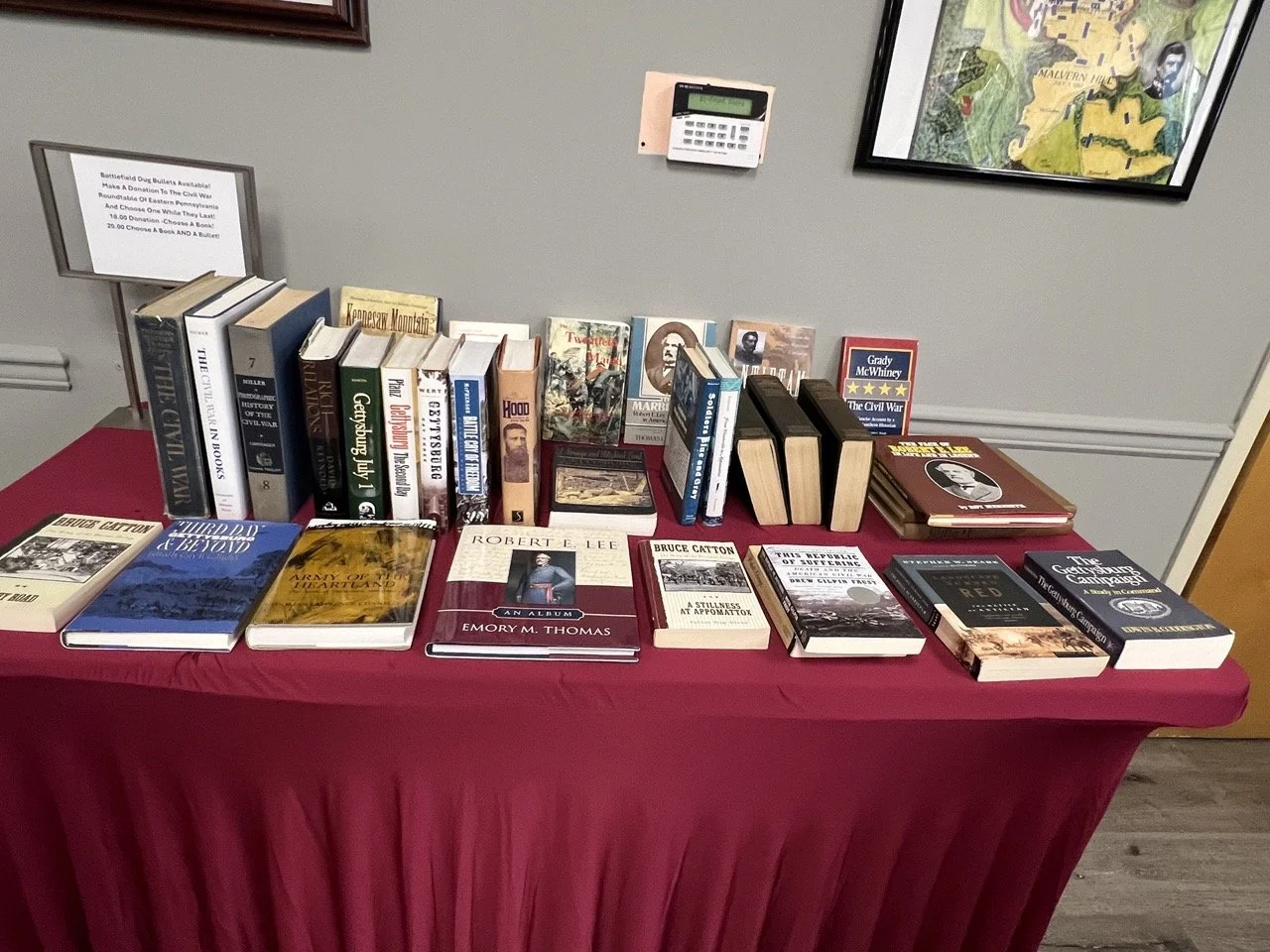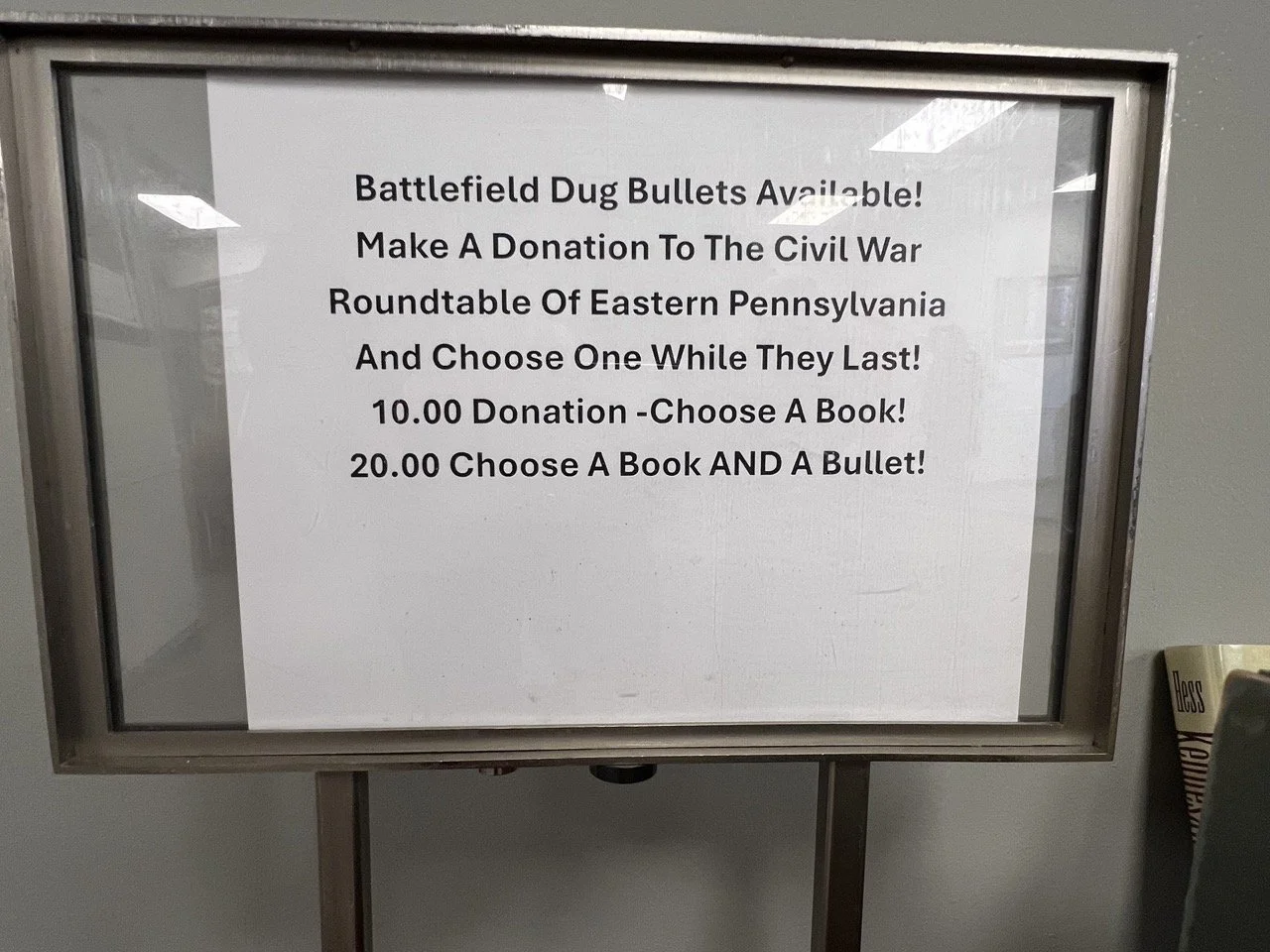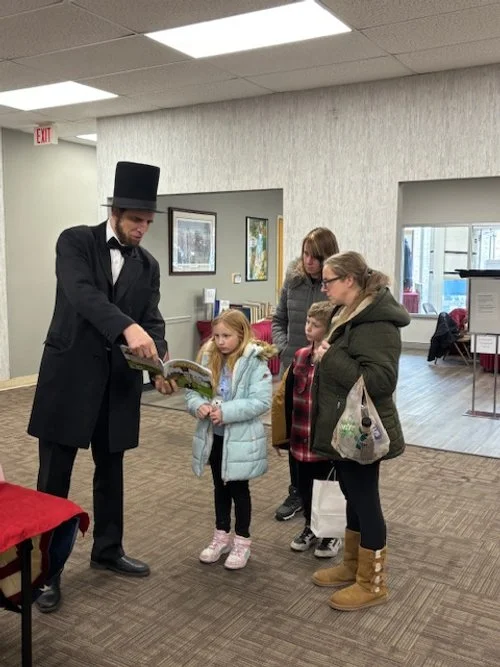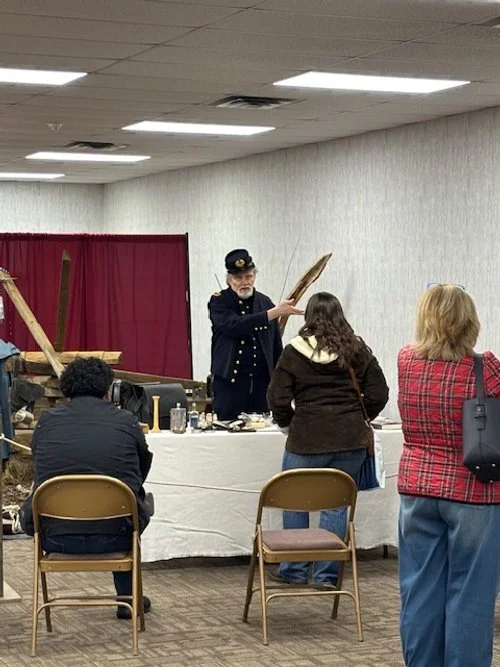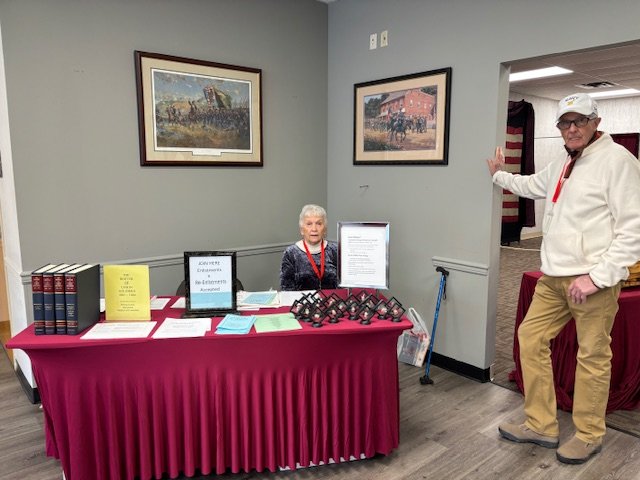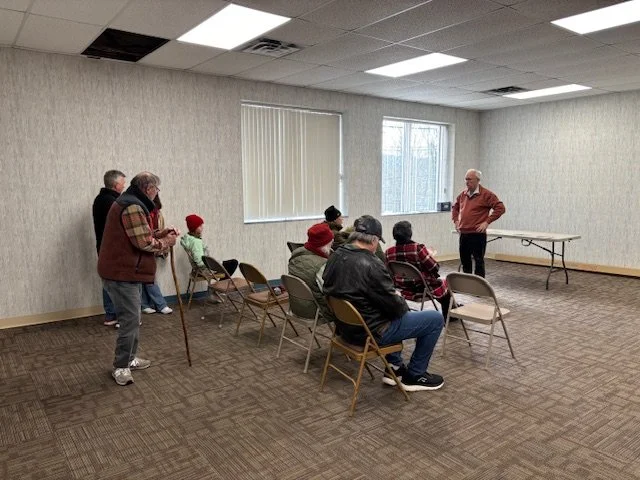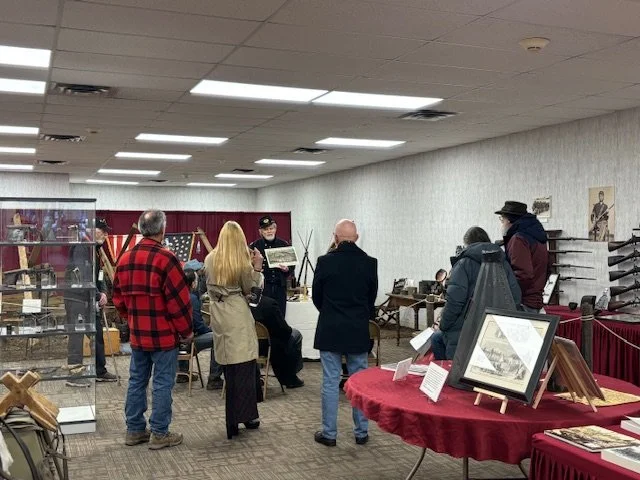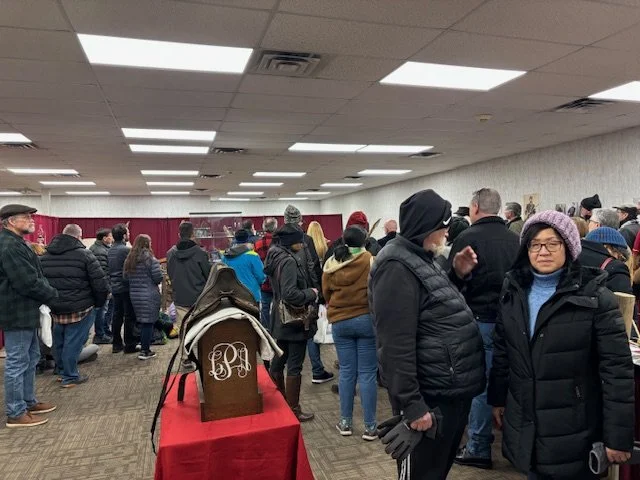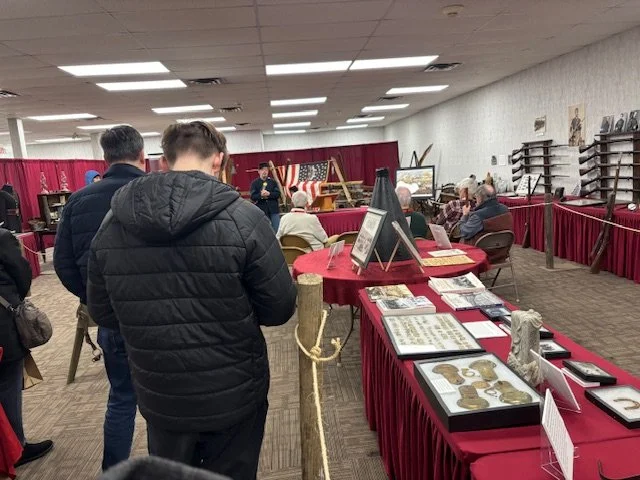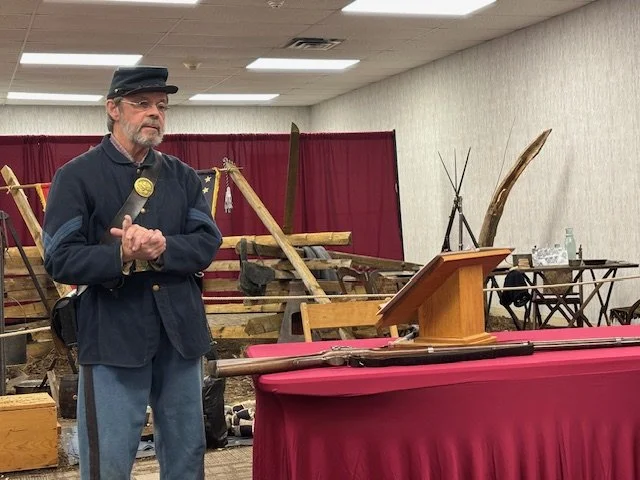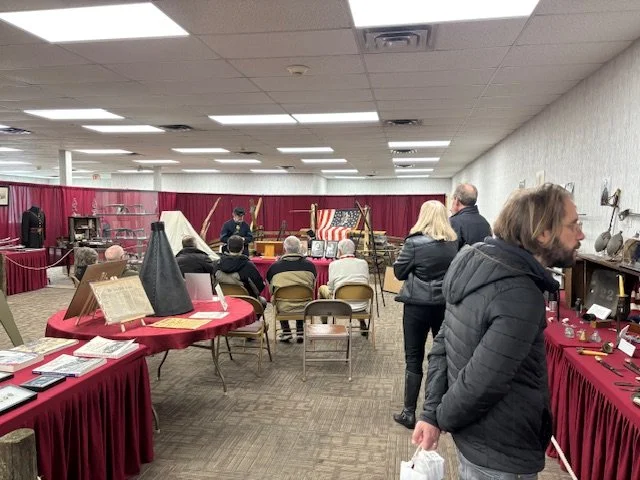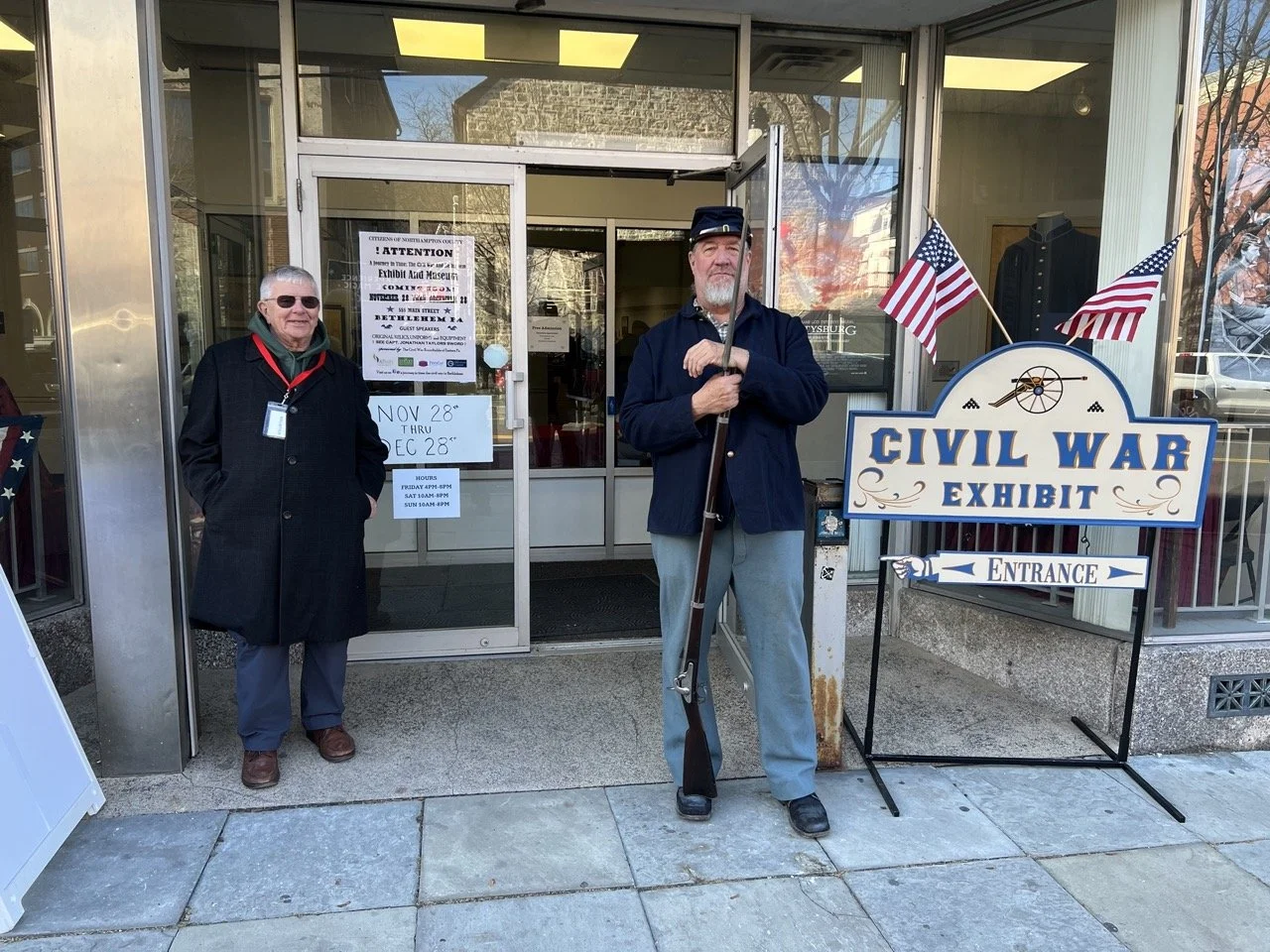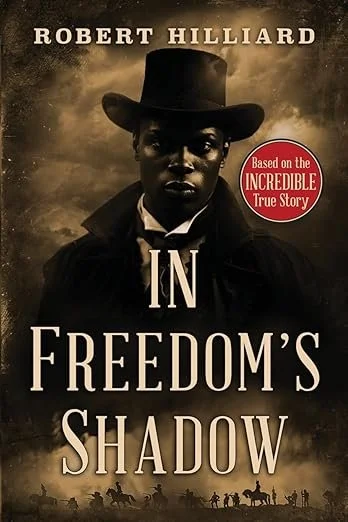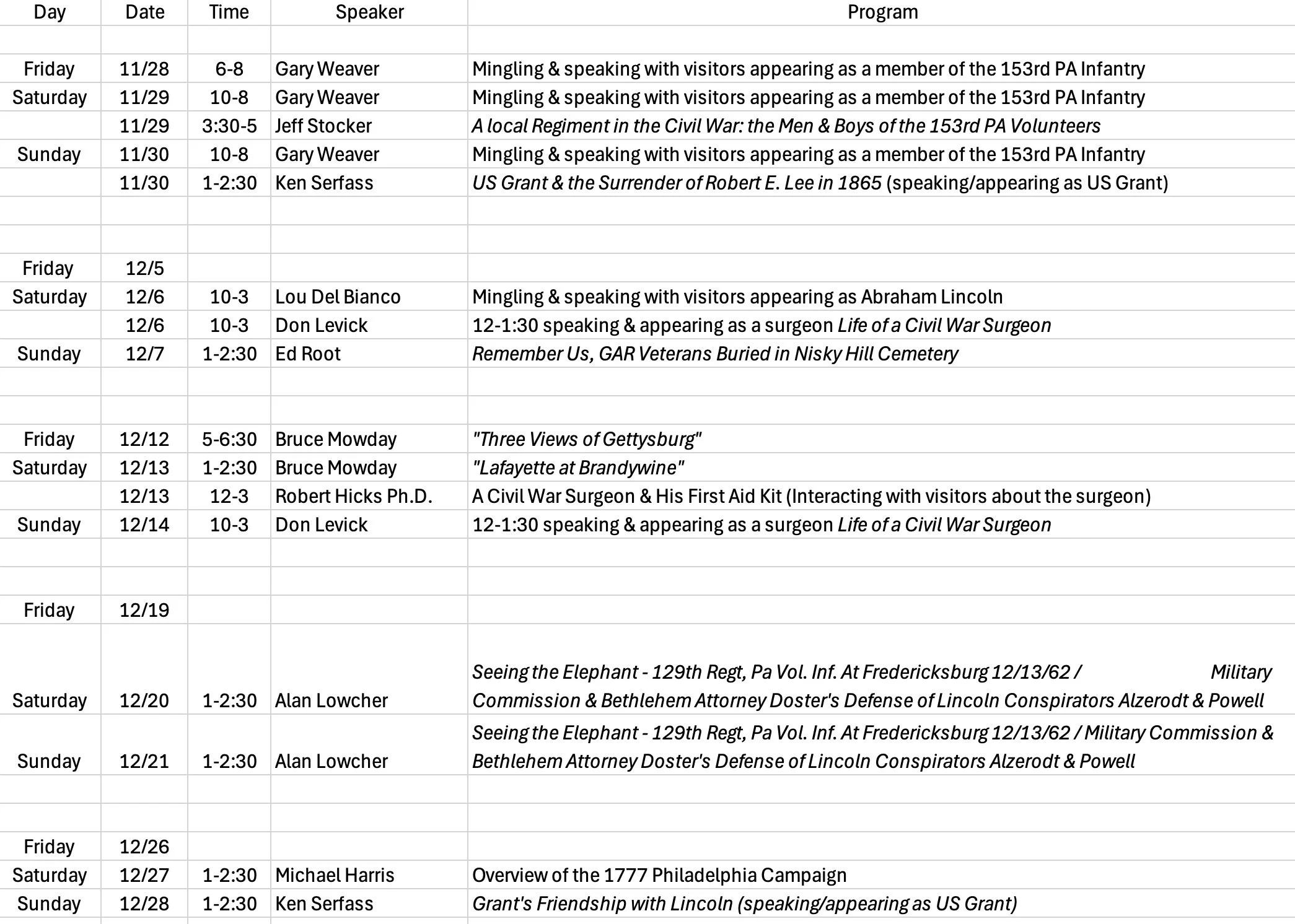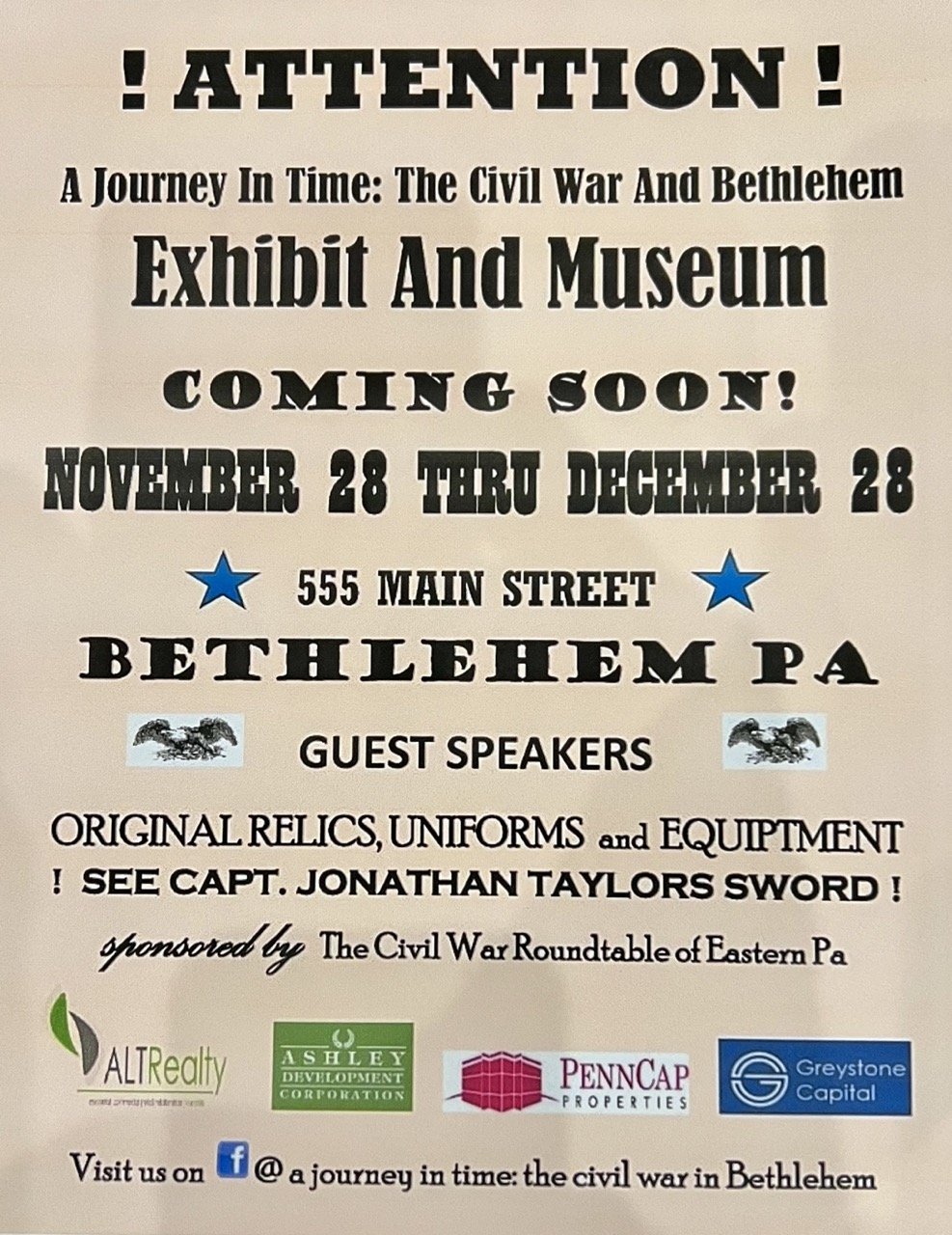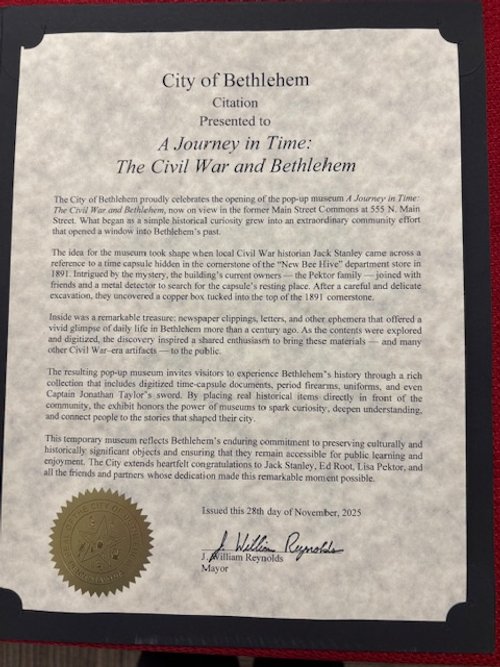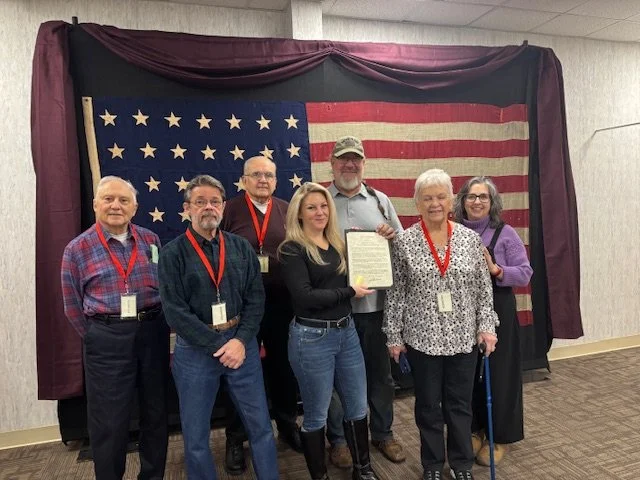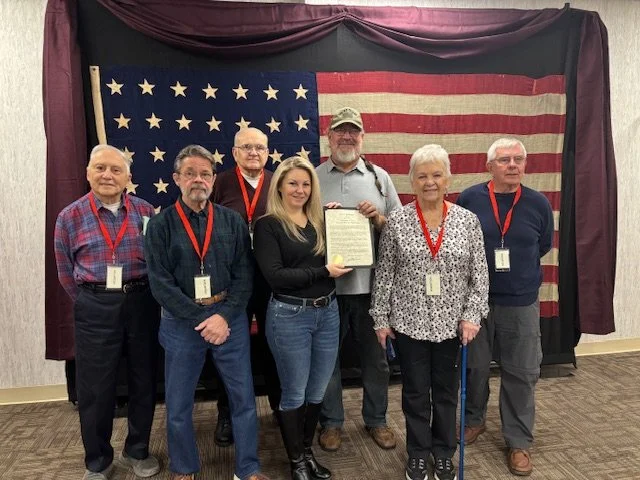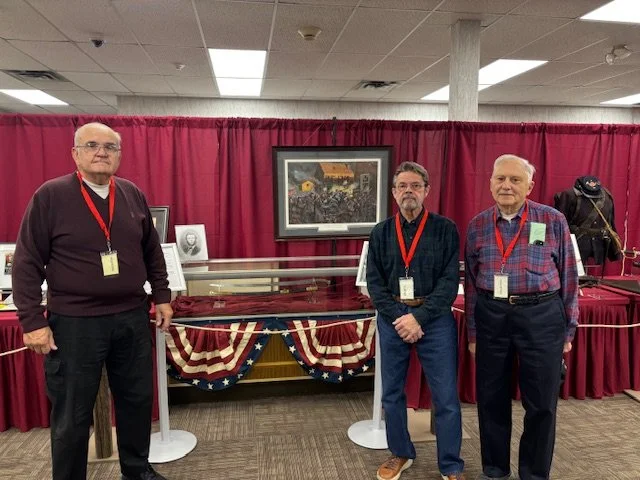Our story began with post-Civil War research by member Jack Stanley. That research led to the discovery of an 1891-time capsule buried at the former Woolworth building at 555 Main Street in Bethlehem. Jack approached the owners of the building, Lou and Lisa Pektor, about the possibility of “hidden treasure” and they enthusiastically joined him in the discovery of the item which contained fascinating documents and information from 134 years ago. Further discussion with these history buffs resulted in the free offering of the space for a pop-up museum right in downtown Bethlehem during the busy Christmas season.
Jack approached the CWRT of Eastern PA, Inc. Board about our participation which was enthusiastically accepted. The idea of bringing local and civil war history to downtown visitors was too good to pass up. The overwhelming portion of the museum artifacts and informational items came directly from Jack’s personal collection. The Jonathan Taylor sword, which normally resides at Nitschmann Middle School, became the strong personal connection of civil and local history. Other items came from Round Table members and friends. After a month or more of preparation where Jack had installed a security system, obtained insurance, painted, made electrical improvements and lugged 60 barrels of dirt by hand to make a camp scene and more. We opened on Friday, November 28.
Over the course of 15 days, ending on December 28, the museum drew some 5172 visitors. We probably missed a few as occasionally it was so busy it was hard to keep count. It’s even more remarkable considering that of the 15 days, five were less than perfect weather. Twenty-six Round Table members and friends volunteered time to be docents. Jack and Gary Weaver were there all 15 days. Additionally, eighteen students from Liberty and Freedom High Schools volunteered as part of their community service program. It was encouraging to see so many young people participate.
There were costs involved in this endeavor, but Round Table members provided almost everything needed, which included buying lunch for volunteers, providing water, coffee, sugar, sweetener, stirrers, hot chocolate, and cookies, lots of cookies.
The museum was free, but we did accept donations. We used extra books from our inventory and original minie balls in cases as incentives as folks did indeed make donations. (Jack made a special trip to Gettysburg to buy more bullets.) Alan Lowcher, Jeff Stocker, Michael Harris, Don Levick as a CW surgeon, Dr. Robert Hicks as a CW surgeon, Lou DelBianco as Abraham Lincoln, Ken Serfass as U.S. Grant, Bruce Mowday and Ed Root all made presentations which drew in visitors.
We learned some fascinating things from the experience:
Folks came from not only the Lehigh Valley and environs, but from all over the United States. We talked to folks from everywhere including Delaware, Kentucky, Massachusetts, Vermont, California, and more. Even more interesting was the number of folks from other countries who were fascinated by our history. Denmark, Poland, Ukraine, Turkey were just a few. Sadly, foreigners showed more interest than a number of our countrymen who sometimes were just in a hurry, were blasé or worse.
We learned that if someone stood outside the event door and encouraged folks to enter it took only a moments hesitation to make contact that resulted in a visit, rather than just walking by…
In general, women were more curious than men and more often than not were the first of a group or family unit to want to enter. We have a few theories on the subject, but over the five weeks it became clear that this observation was an accurate one. (A survey done at Gettysburg NMP a few years ago came to the conclusion that more women visited than men.)
Invariably folks leaving the event expressed warm appreciation for the museum and were extremely grateful for the opportunity to explore our history. Some children rushed in to get a cookie and came out talking about President Lincoln. Visitors came in every size, shape, color, age, language and background.
We received great coverage from WFMZ and received a certificate from the City of Bethlehem. Many local people mentioned that coverage as the reason for their visit.
A extremely positive result of the event is that we picked up at least eight new paid members. Many visitors took the informational Round Table brochure made up by Marie Maly so hopefully that number of members will grow. Look for new faces at upcoming meetings and be sure to engage and welcome them. Bill Dax and Charlies Unger not only joined but immediately became volunteers.
None of this would have been possible without Jack and his folks, Jack Sr. and Carol. Without them none of this would have occurred.

